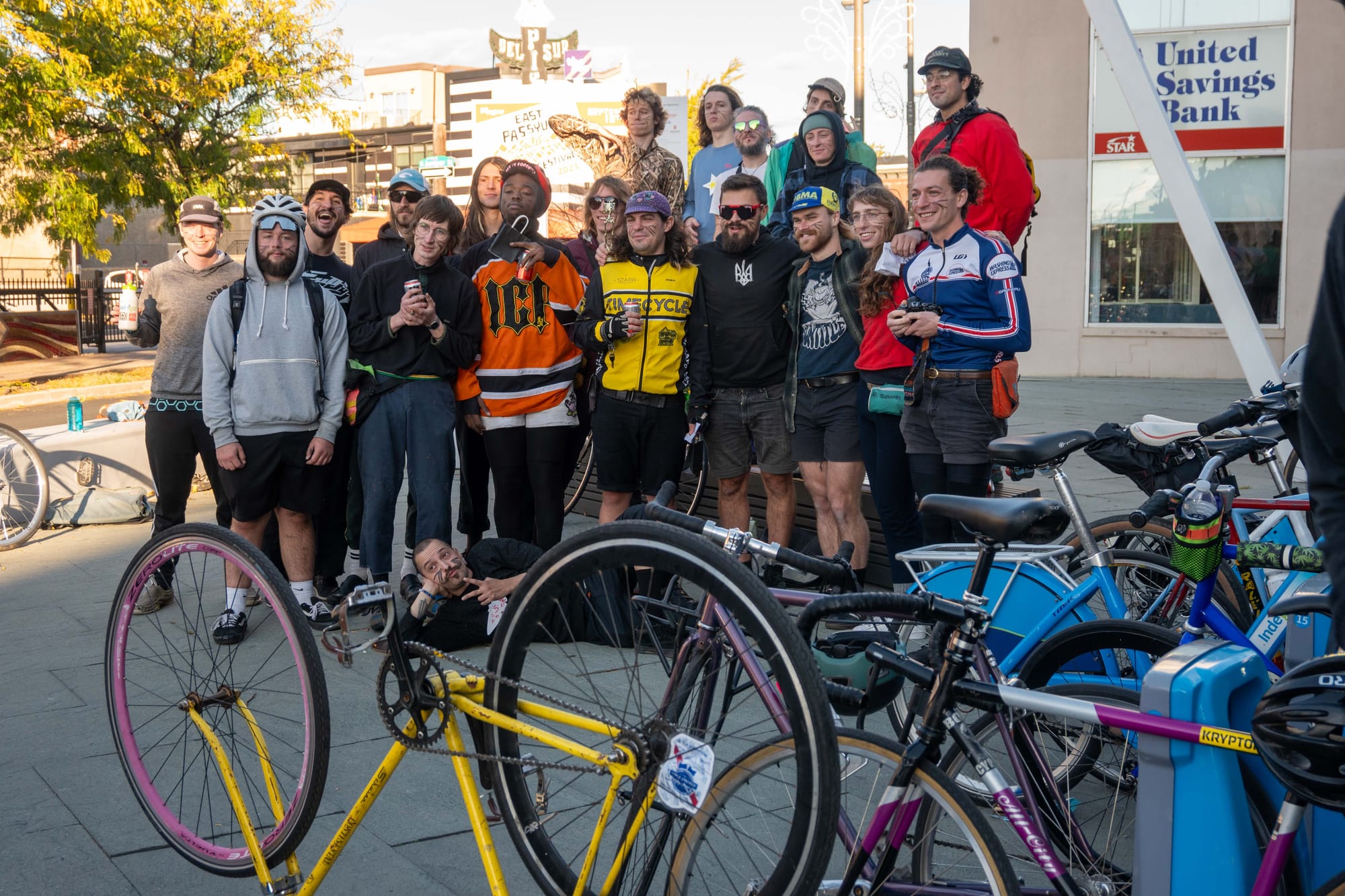Checkpointing with Chris at Snake and Dagger Alleycat
Check off your manifest by reading today's story about Chris and her experience riding bikes in Philadelphia. She gives us the scoop while checkpointing at Snake and Dagger Alleycat, a fundraiser for North American Cycle Courier Championship.
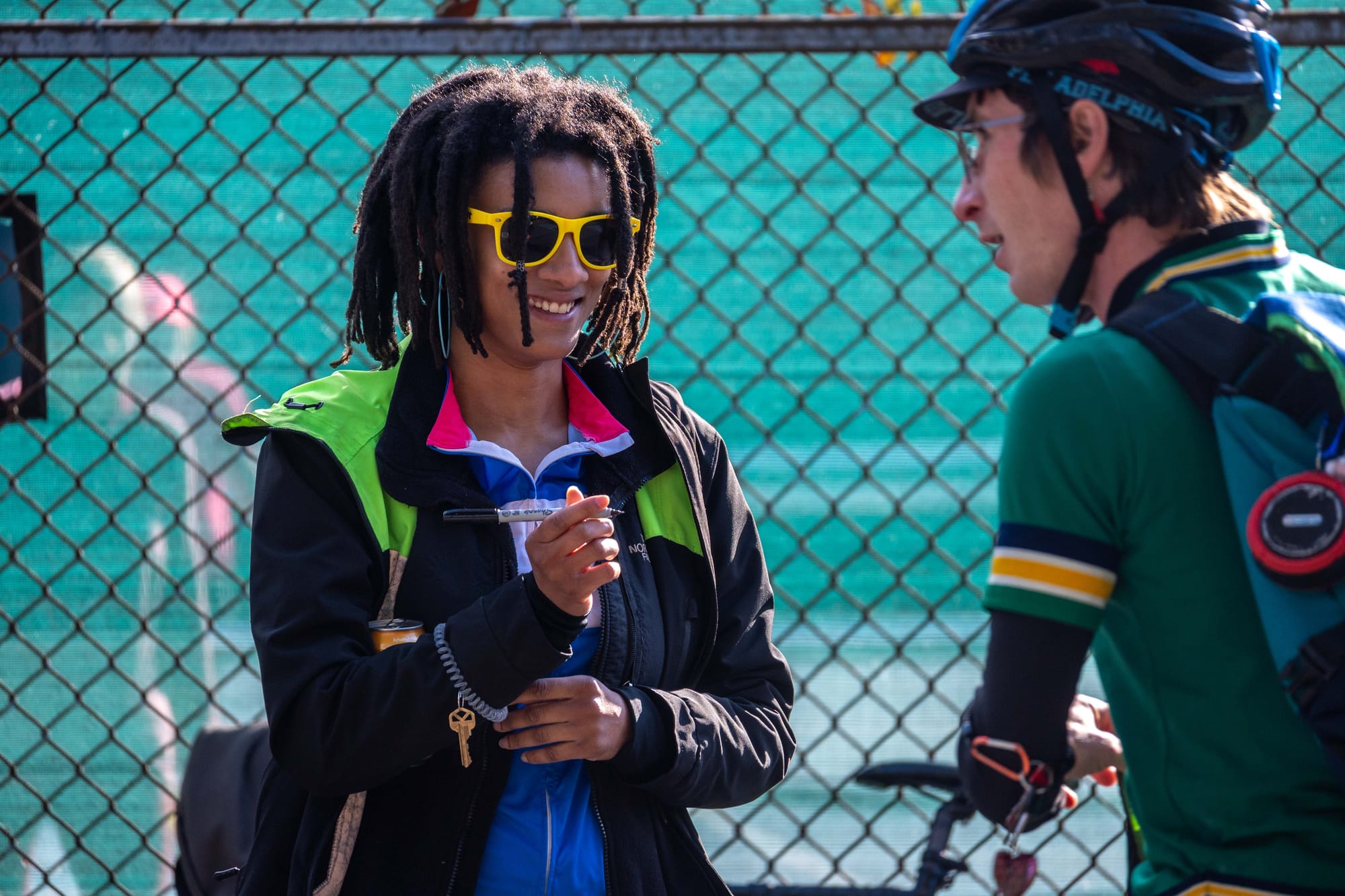
Subscribers can see the whole photo gallery at this link.
After Chris won the WTFN-B category of this summer's Citywide Alleycat and was nominated in an Instagram poll as one of Philly cycling's most influential women, I knew I wanted to hear her story and share it on The Trellis. When details for this year's Snake and Dagger Alleycat dropped shortly after, I knew it was the perfect occasion to check in and dish out.
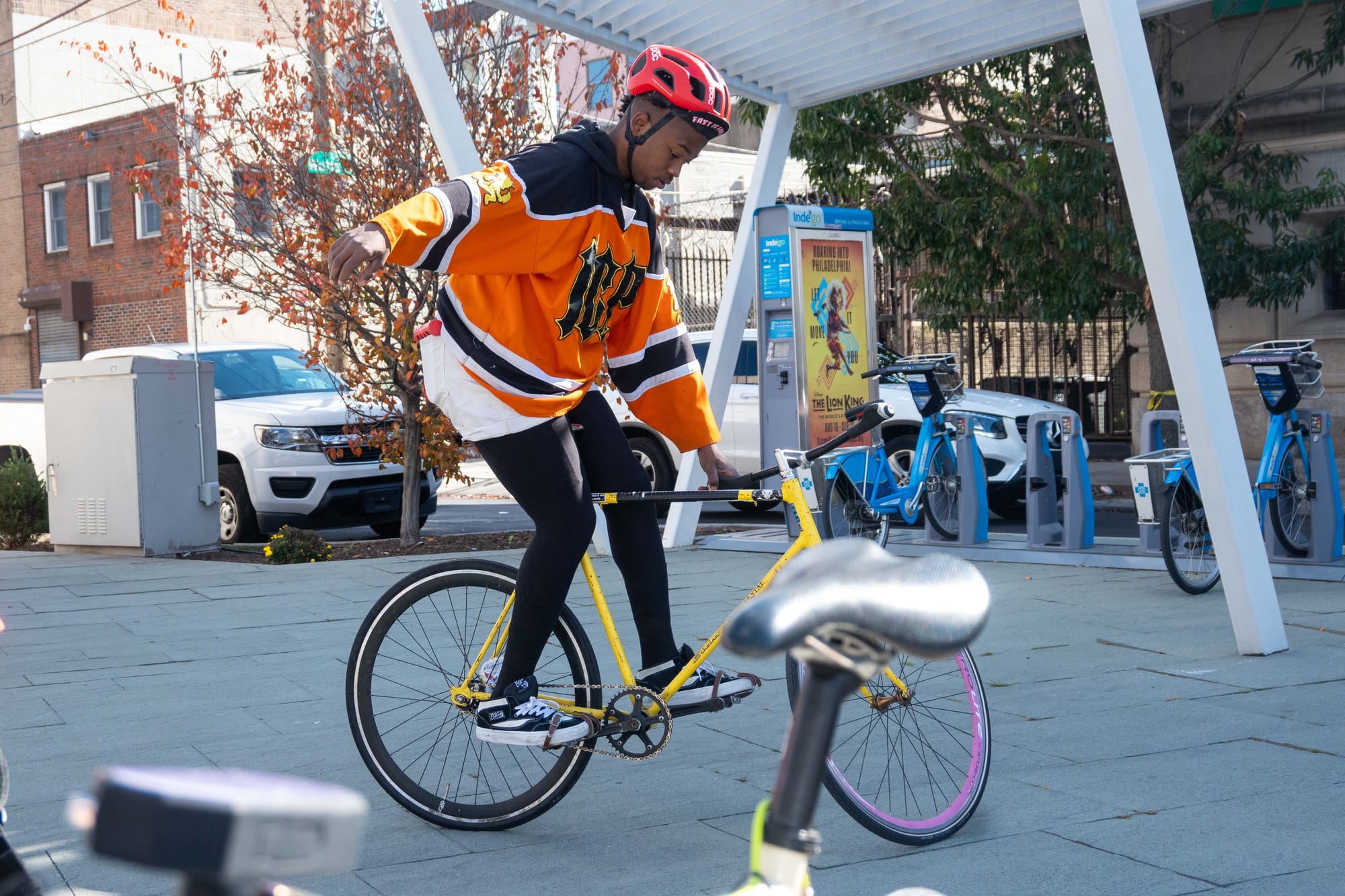
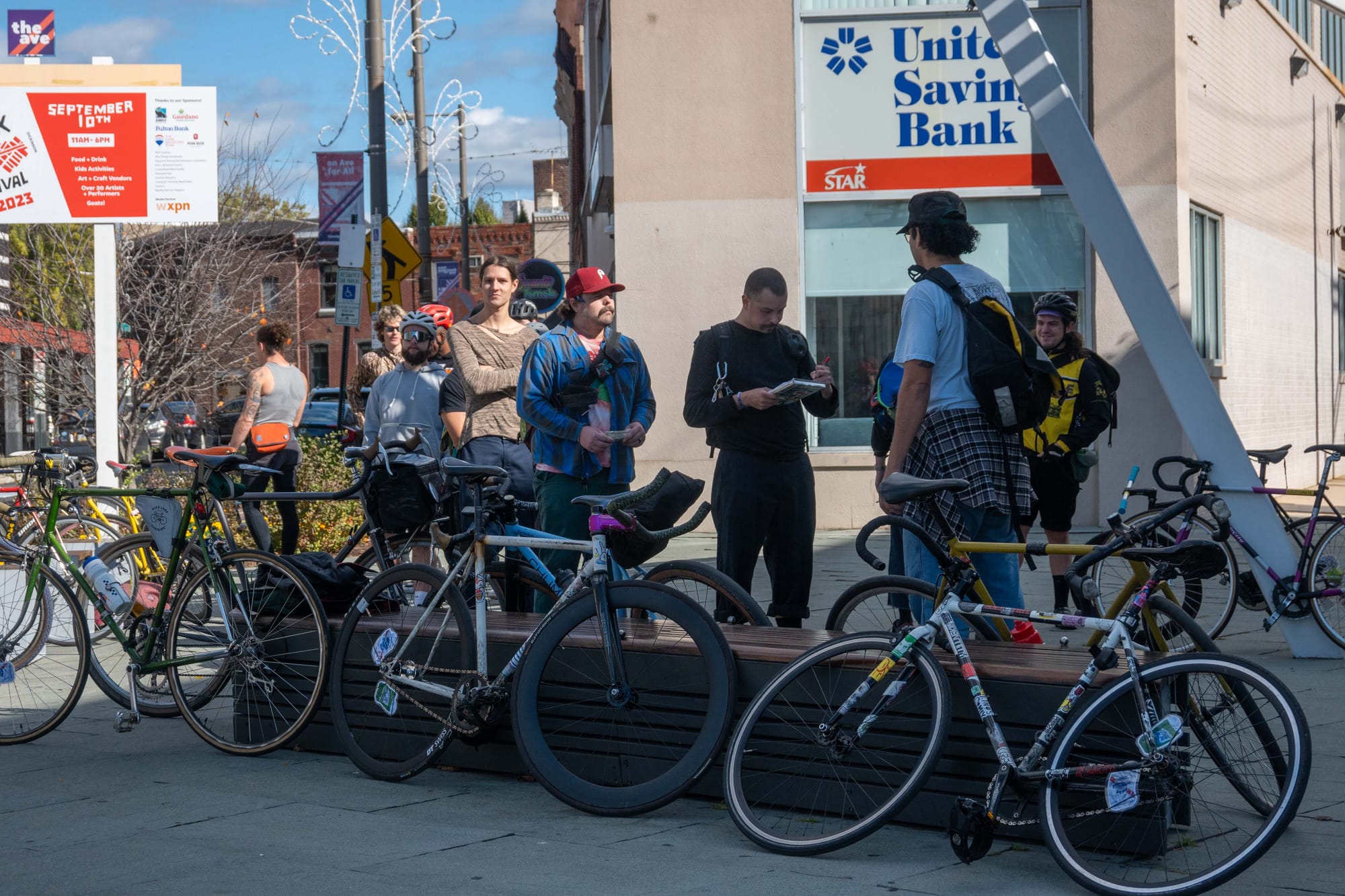
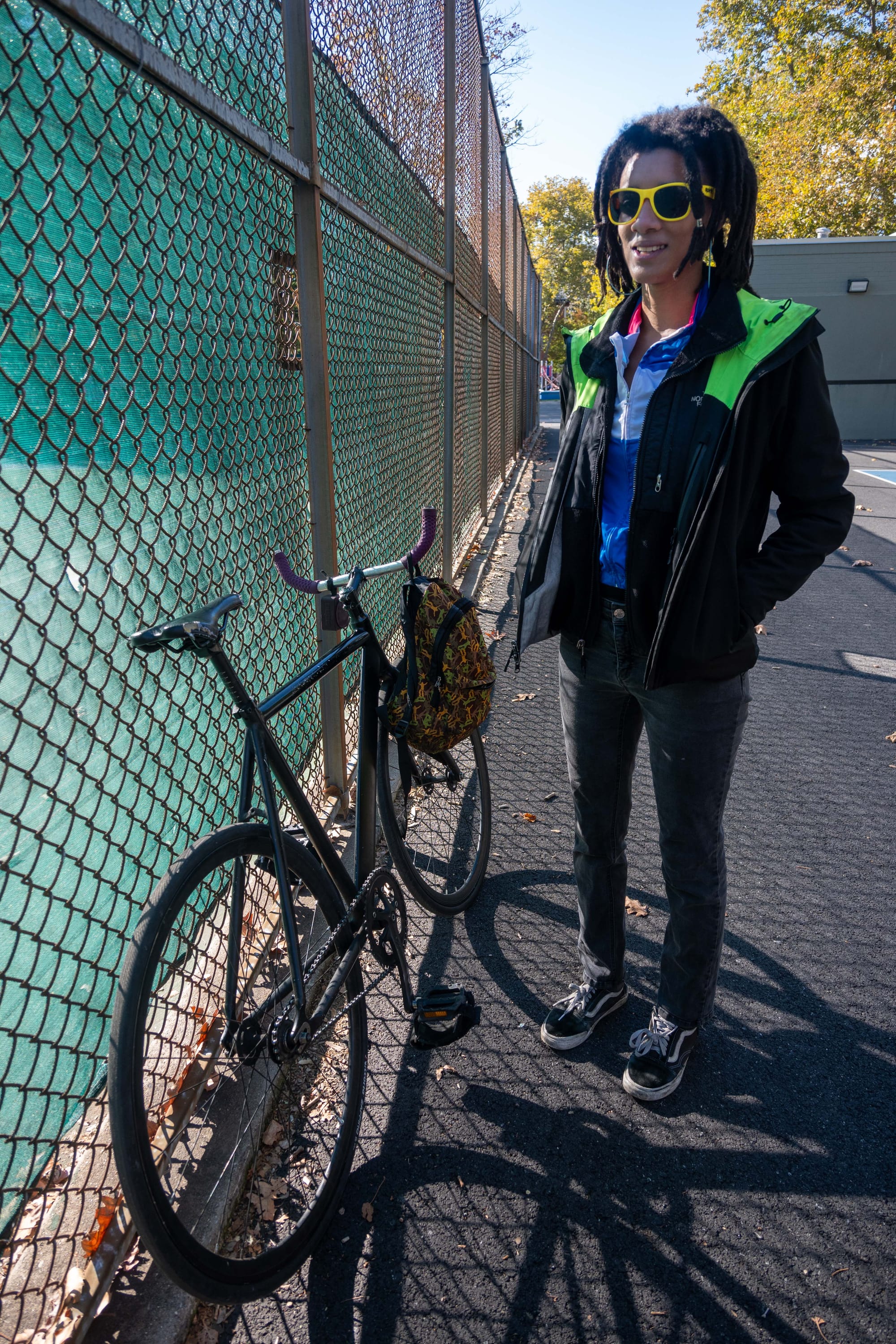
Chris's alleycat resume includes R.E.Load's 2018 Maypril Fools and a couple Citywides, but this would be her first time checkpointing. She was assigned to the checkpoint at Seger Park at 10th and Lombard in Wash West: the third of seven stops in an optimally planned route that started from East Passyunk Gateway in the very heart of South Philly.
An early stage checkpoint makes for an exhilarating experience. Unwrapping a snack and recounting the commute from West Philly alongside her partner, McCoy, riders started flying in as furiously and unexpectedly as a summer storm. Arriving en masse, they leapt from their bikes as Chris pointed them towards the hopscotch court they'd need to bop through to earn a signature on their manifest and advance. The Guinness World Record for fastest game of hopscotch is just under 62 seconds. What are the rules again?
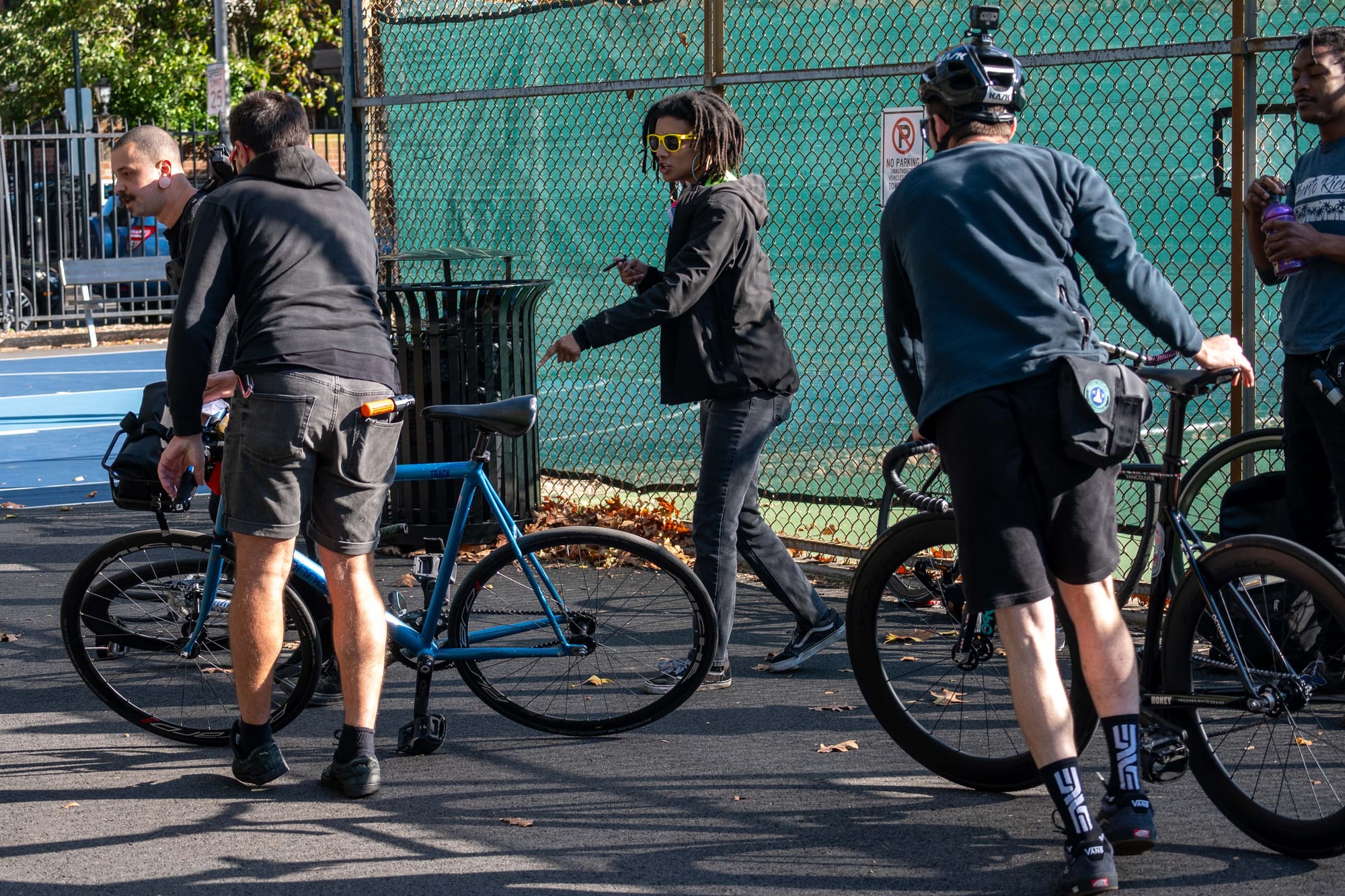
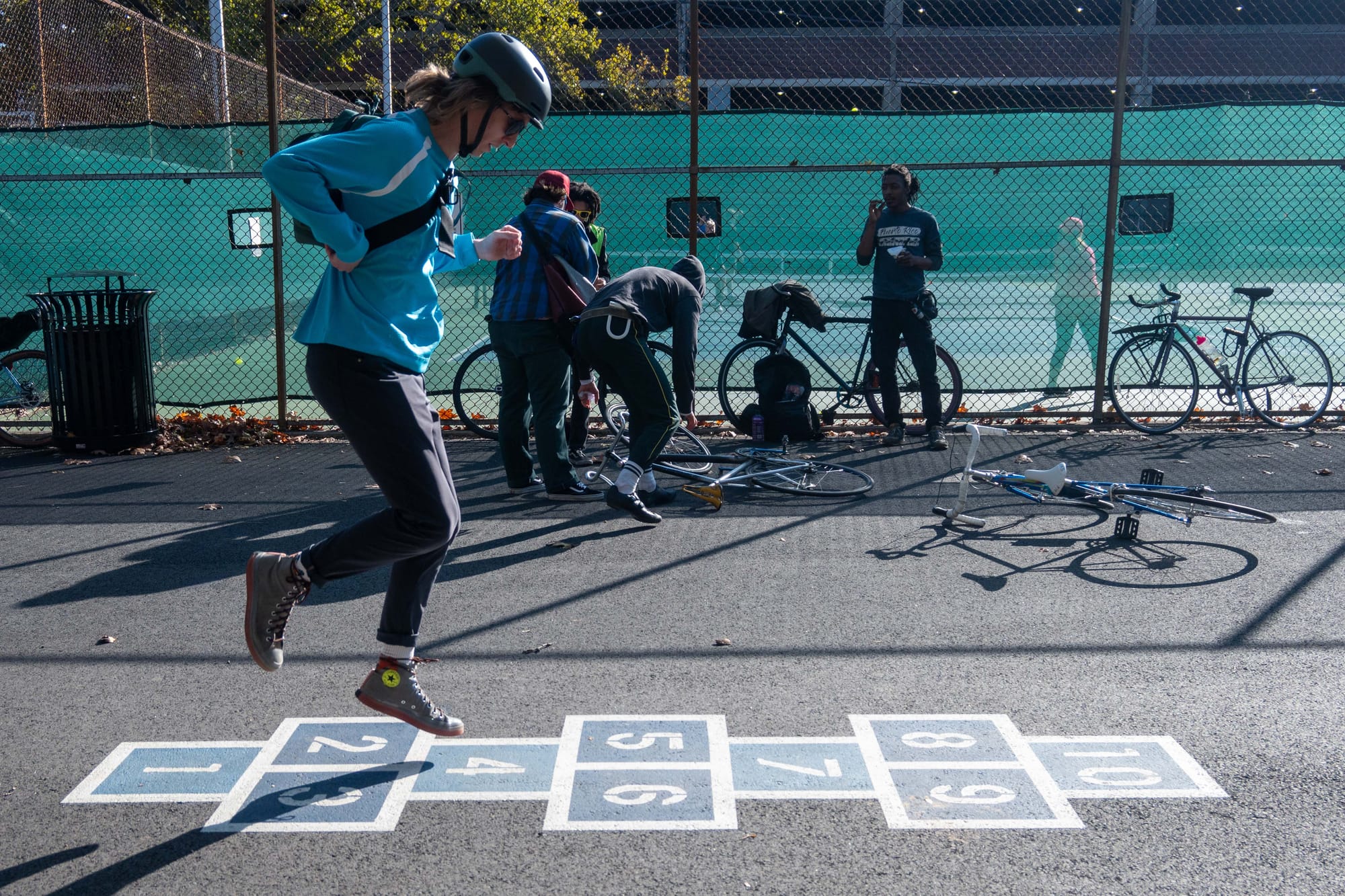
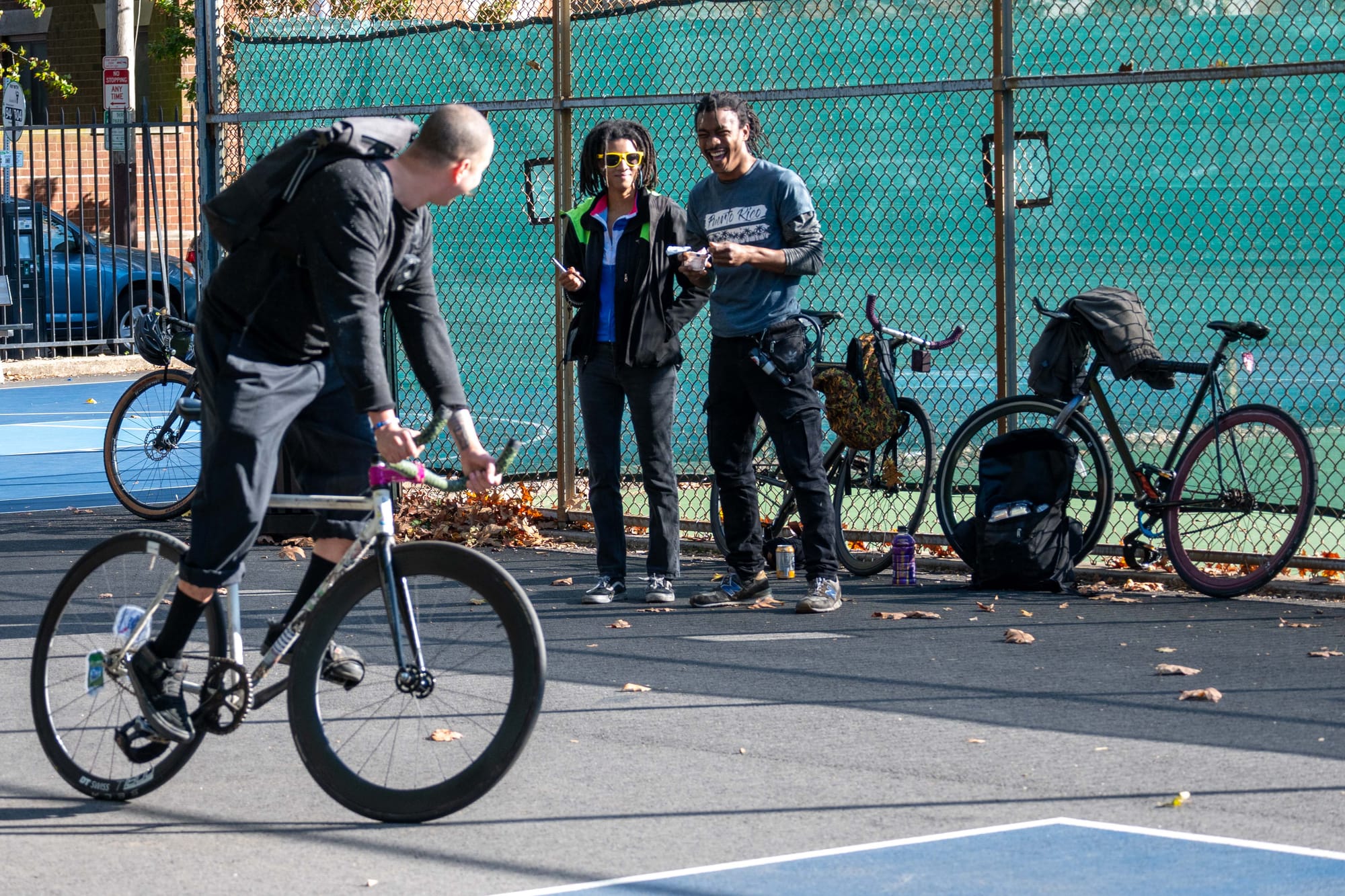
The second Philadelphia edition of Snake and Dagger was organized by Keean, who, outside of bikes, is the drummer for PHL screamo/post-hardcore band Sonagi. The race actually has roots in Toronto, whose grid is laid out similar to Philly's and where Keean had been living and working as a bike messenger. After getting a tattoo of a snake wrapped around a dagger, Keean's friend Cam mentioned it would make a cool design for a bike race. The fastest route would wind back and forth from checkpoint to checkpoint across the city with a final all-out sprint straight down the main drag back to the finish (in our case, four miles of Broad Street). The ideal GPS track would resemble a snake wrapped around a dagger.
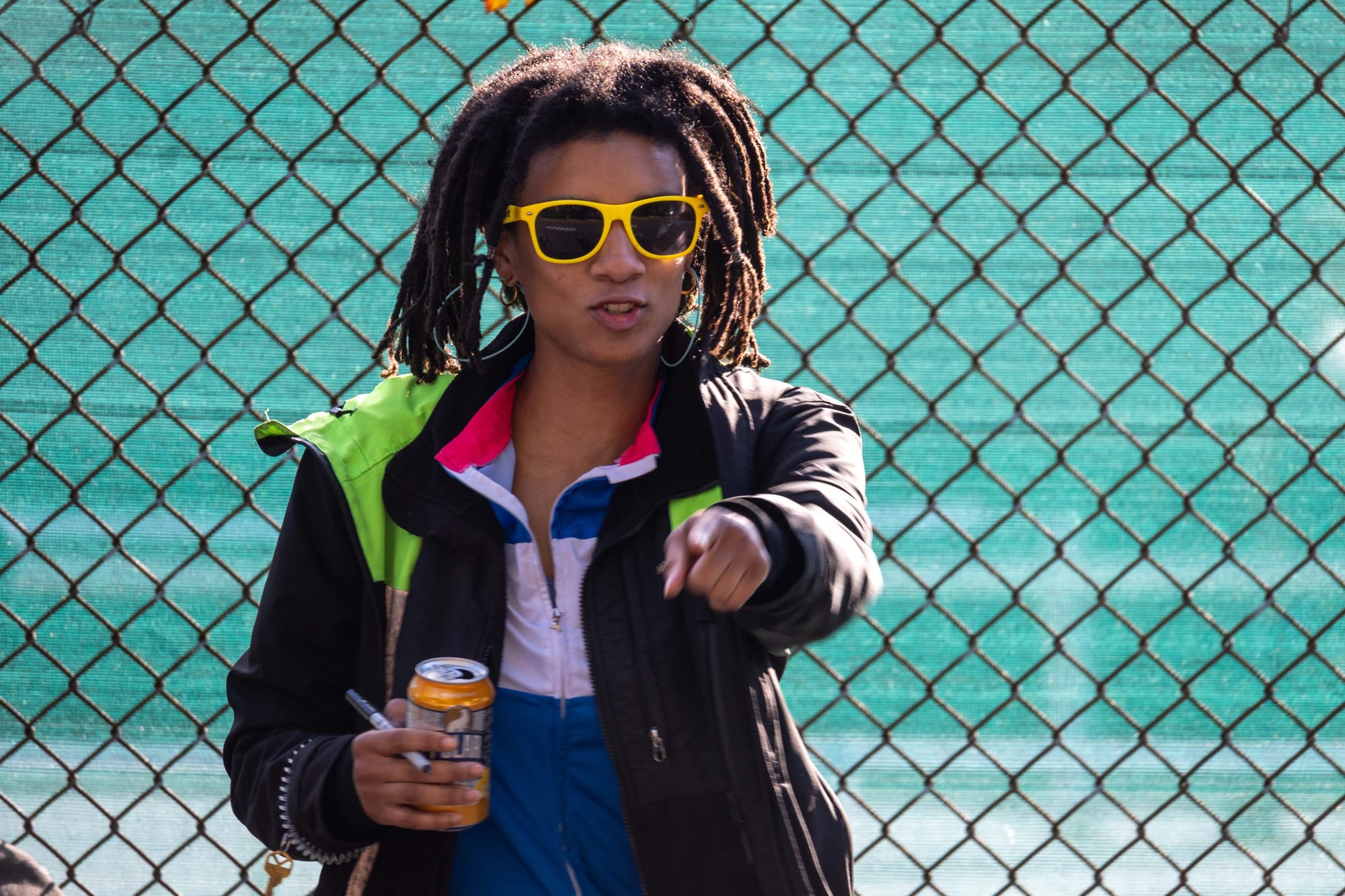
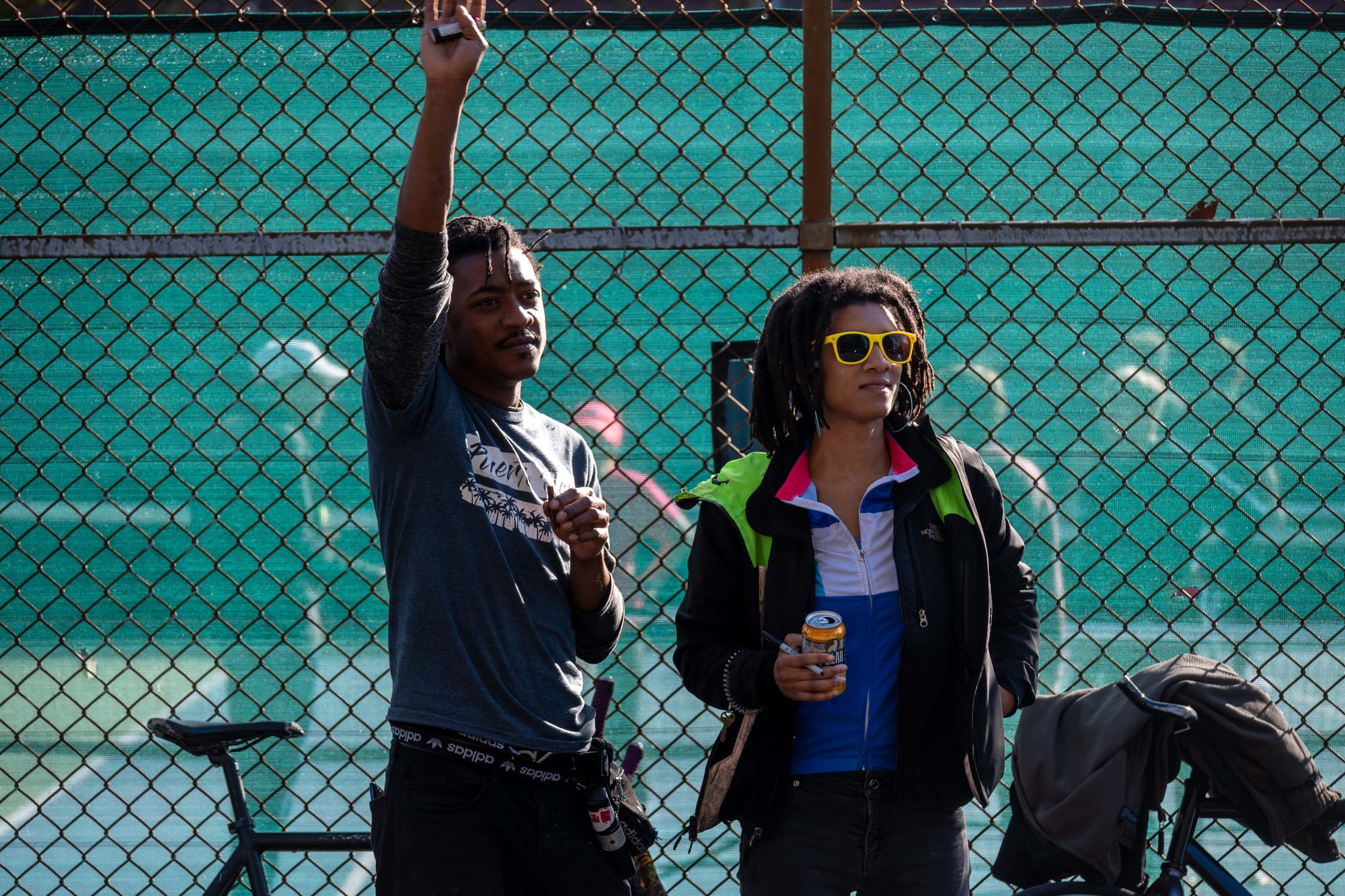
Snake and Dagger doubles as a fundraiser for the North American Cycle Courier Championship (NACCC). The annual event has been hosted by a different city each year for decades and features events like closed course alleycats, cargo races, trackstand and footdown contests, DJs, parties, and more. This year's event took place in Mexico City and funds raised by events like Snake and Dagger helped pay for permits, street closures, entertainment, afterparties, and prizes. NYC Bike Messenger Association co-founder Alejandro Valencia played a pivotal role by reaching out to contacts in cities across North America and Europe to host NACCC fundraising events. In addition to Philadelphia, fundraising sprints and alleycats were held in NYC, Durham, San Diego, Boston, Seattle, Los Angeles, Las Vegas, London, Copenhagen, and Milan. Summing it up, Alejandro told me "these fundraising races are a perfect example of that sort of camaraderie amongst messengers and it’s amazing to just watch it happen."
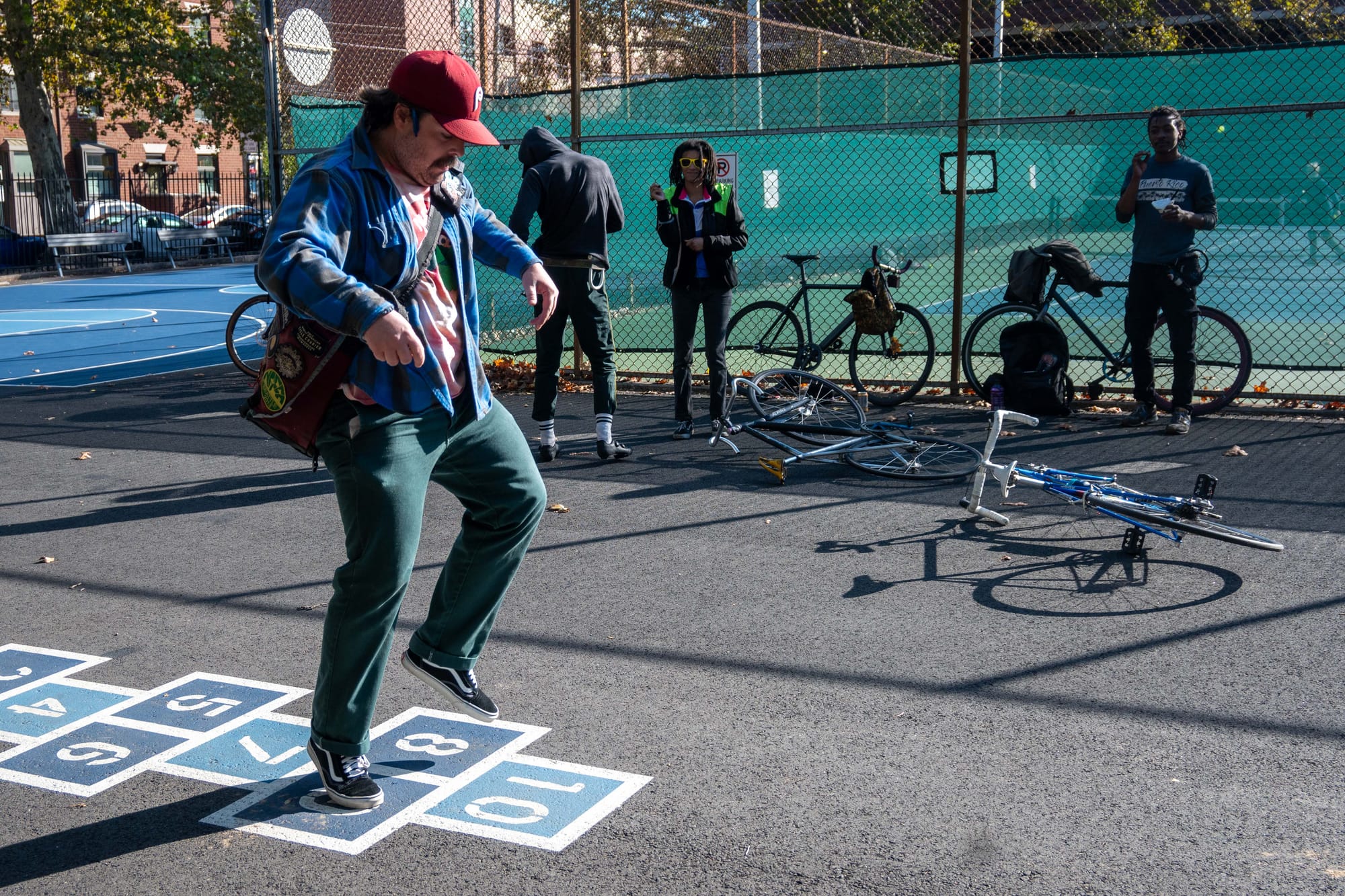
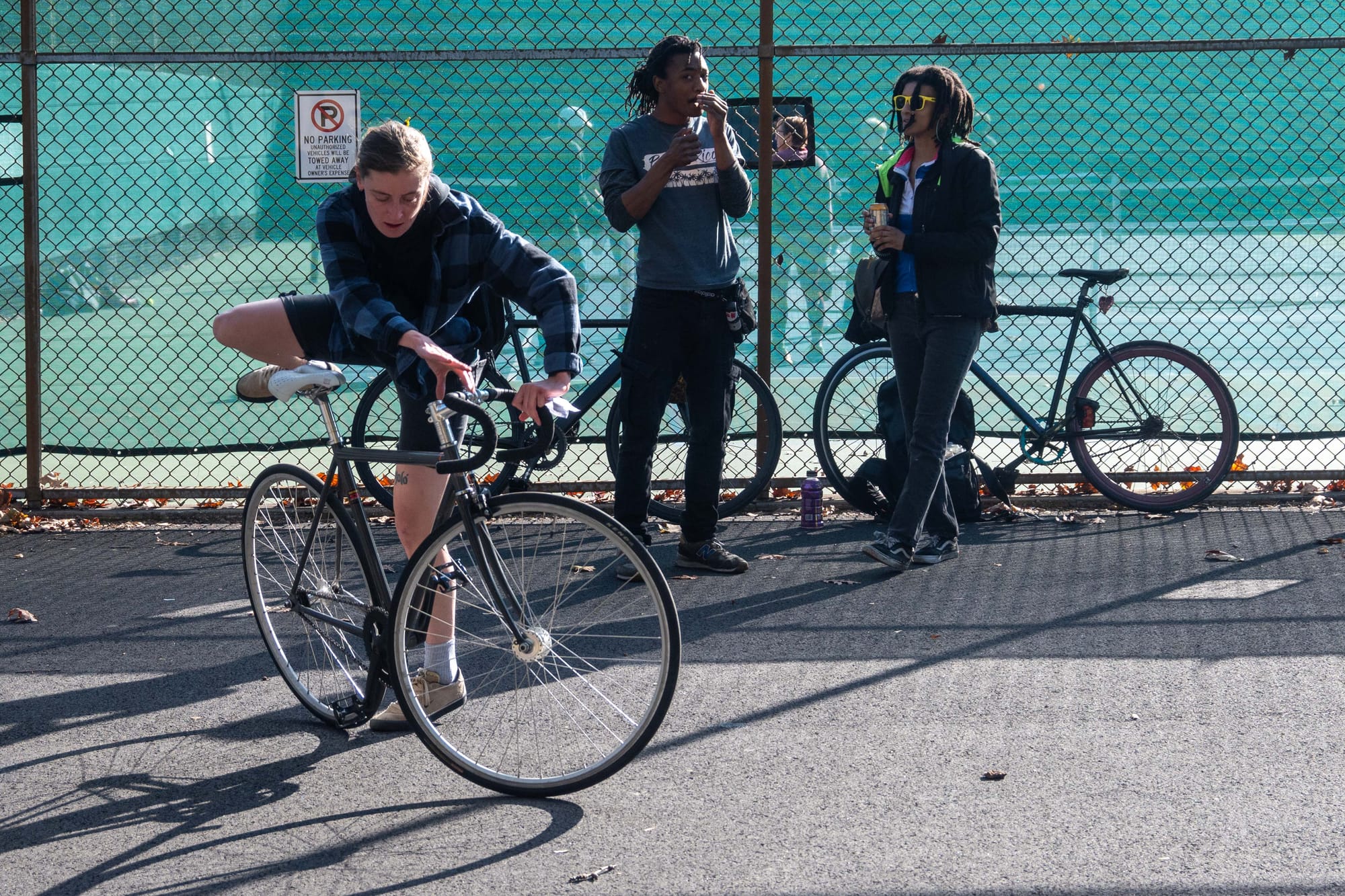
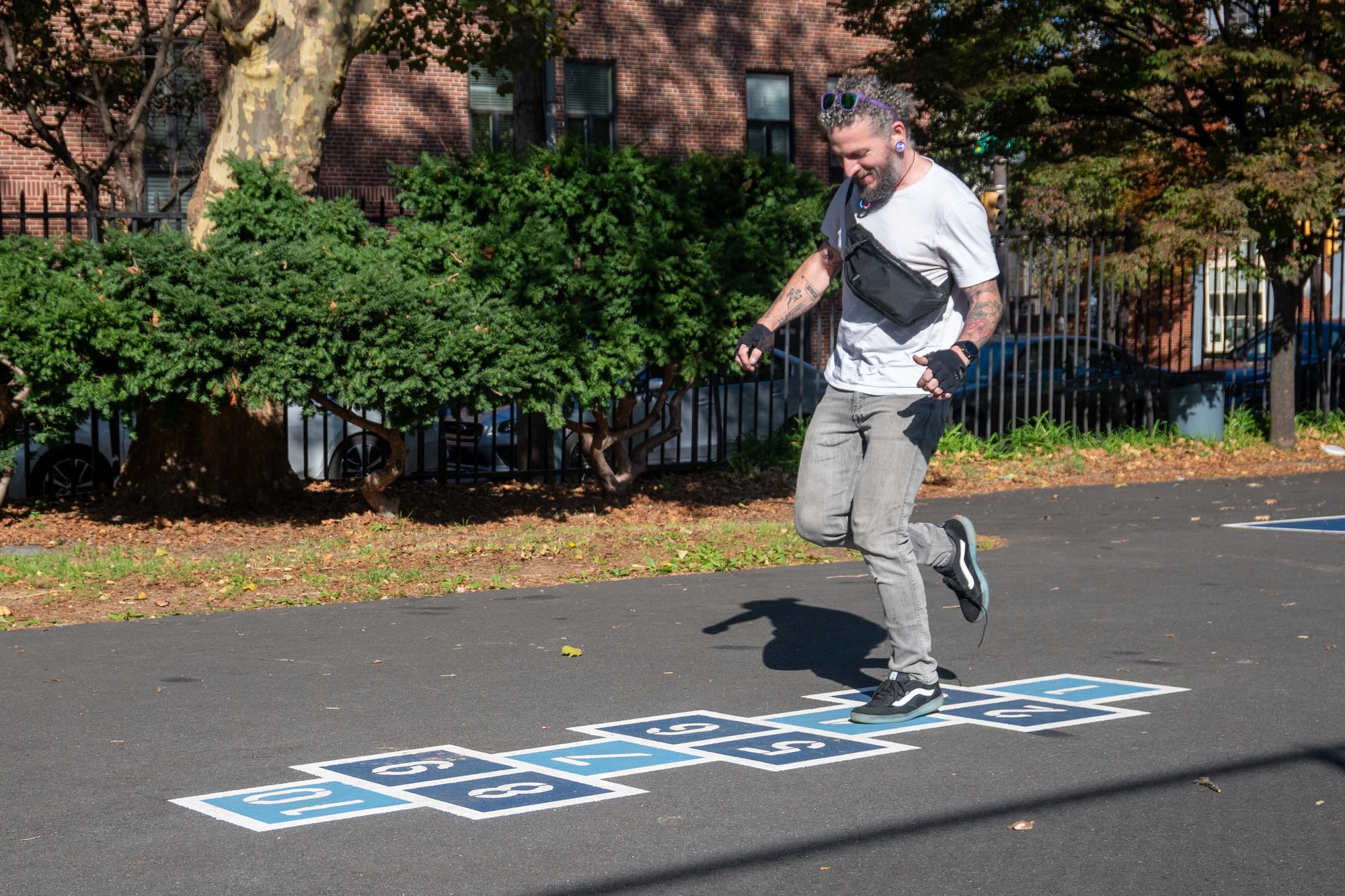
Seger Park is a familiar place for Chris. Growing up in Germantown, her family would ride public transit into Center City to play in parks like Seger, which were better resourced than their counterparts in North Philly. She remembers the playground here being much bigger, and reflects on the lack of adequate space for teens and highschoolers to occupy in our city. Ditto for bike infrastructure. Chris notices that while bike lanes criss and cross central Philadelphia, entire neighborhoods in North Philly are totally disconnected from the greater bike network.
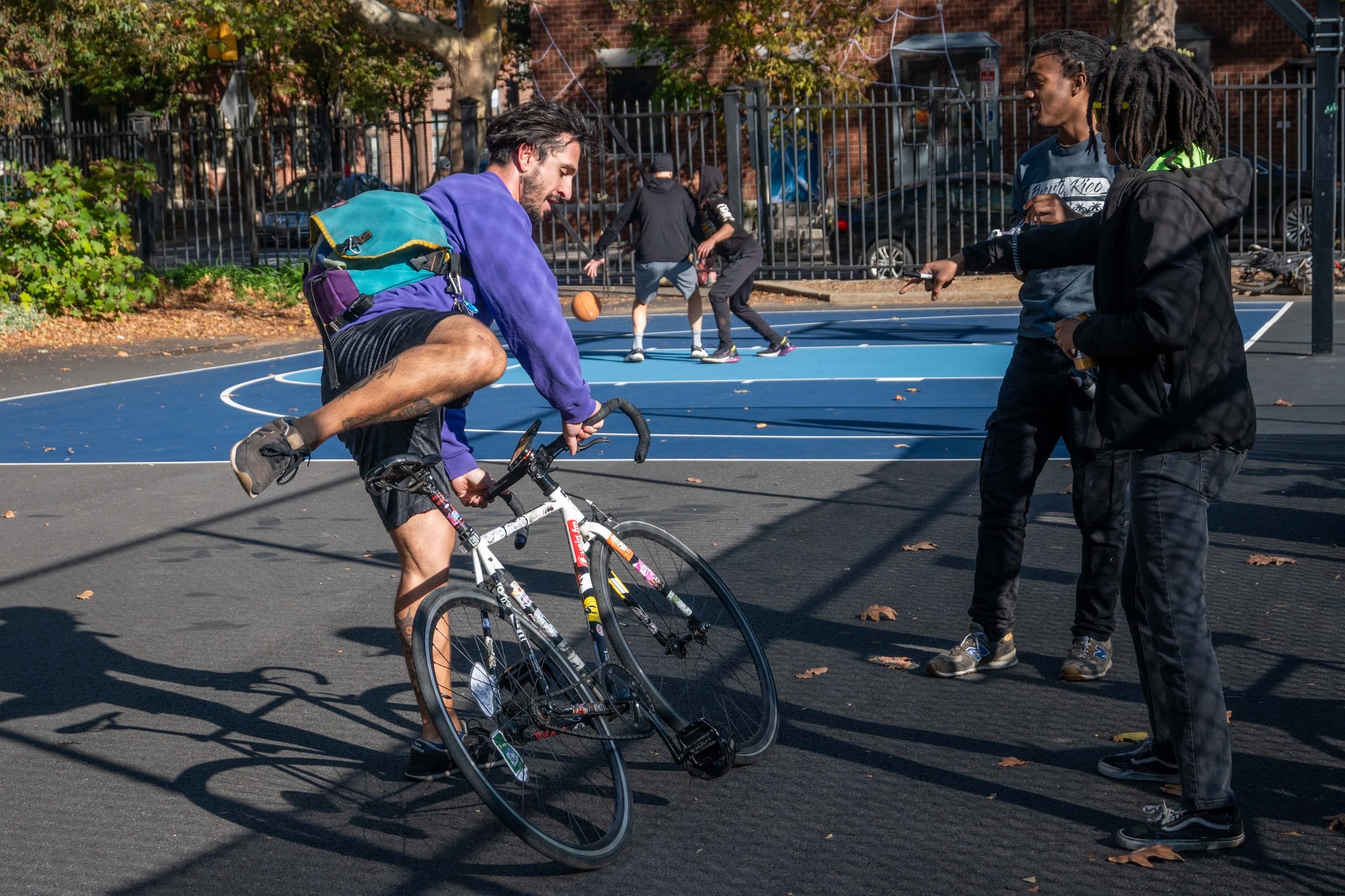
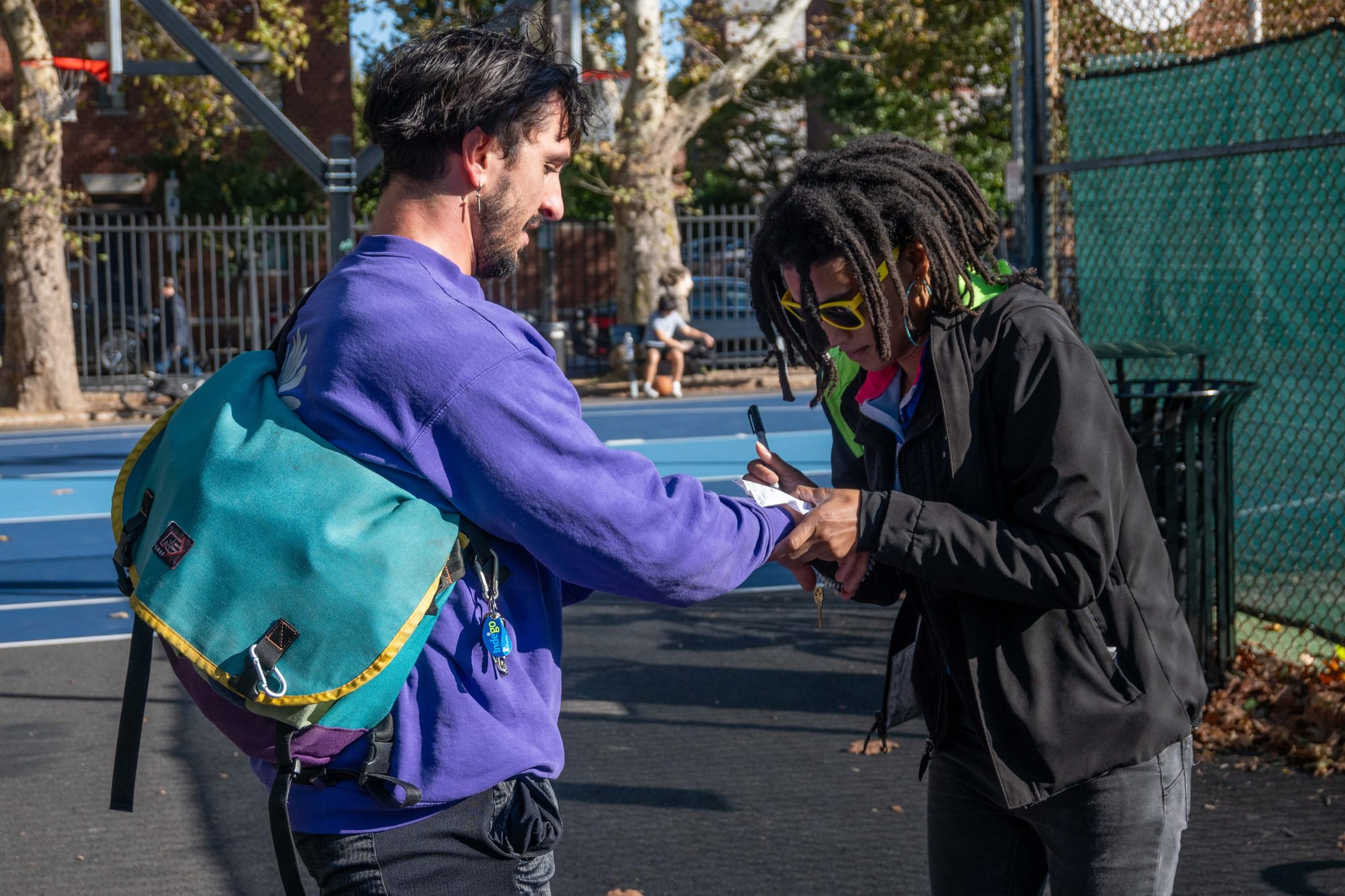
Chris started riding in summer 2017, doing deliveries for Jimmy John's. She started on a gold-colored single speed Motobecane and rode it to death. After her local bike shop told her that bike wouldn't be safe to ride anymore, she picked up a fixed-gear 6KU for 50 bucks from a kid leaving the city after graduating from St. Joe's. It's been her main ride for two years now. Fixed gear bikes have always stood out to Chris for their intensity, low cost, and ease of maintenance. Since the gears are fixed, you never have to fix your gears.
She's seen lots of people get started on bikes delivering for Jimmy John's and Insomnia and work their way into the gig economy via the apps. Her bike takes her to new places at gigs all around the city. She described how riding across the Ben Franklin Bridge feels like flying and reveled in a recent ride over the hills of Laurel Hill Cemetery where beauty and challenge collide. Her favorite place to ride is in heavy traffic. She's not an adrenaline junky and says it might sound crazy but it's a thrill: "If you have a job to do, you have to get it done. No one teaches you but you have to learn by trial and error how to get through quickly and efficiently. Despite scary experiences."
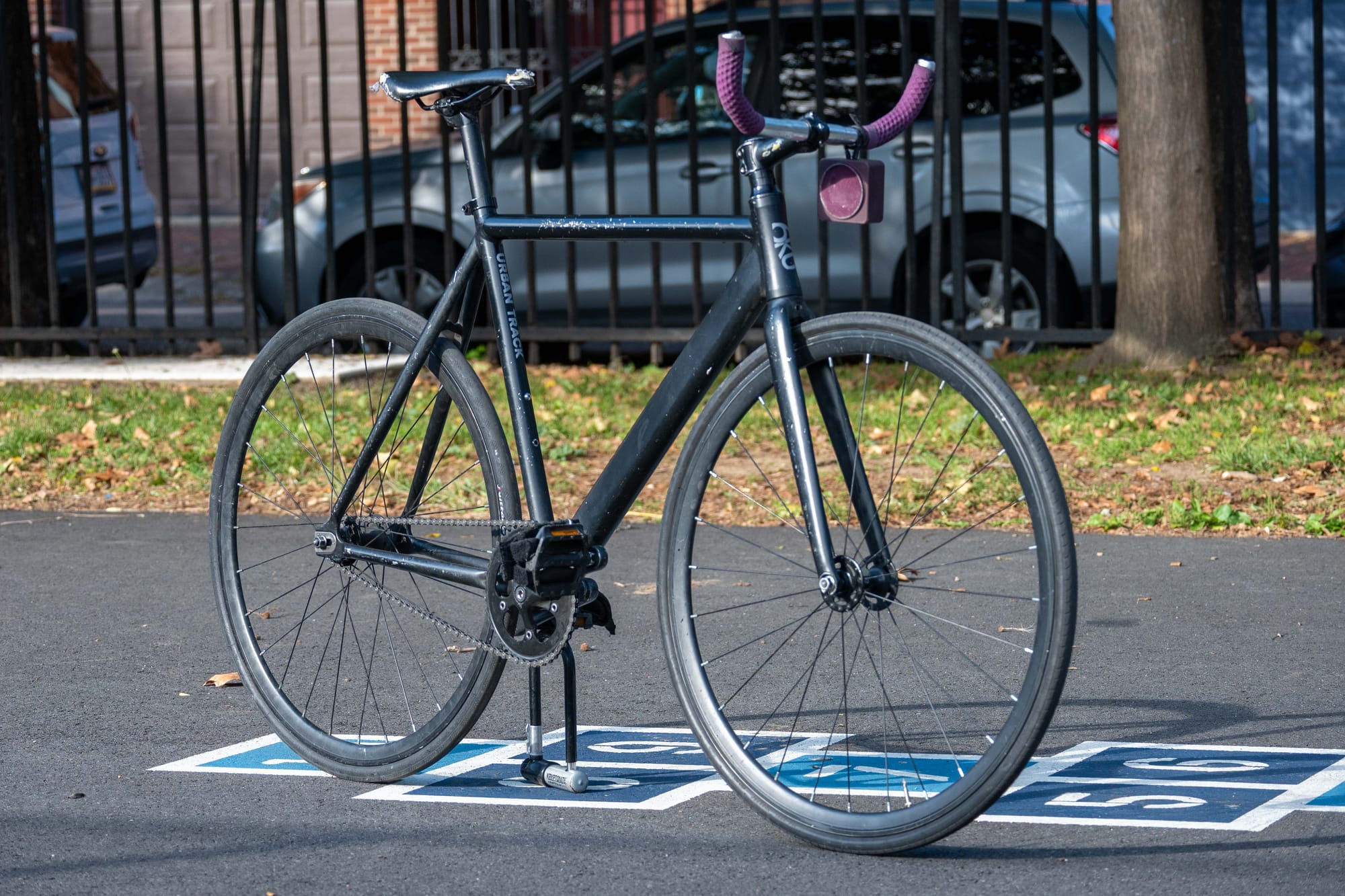
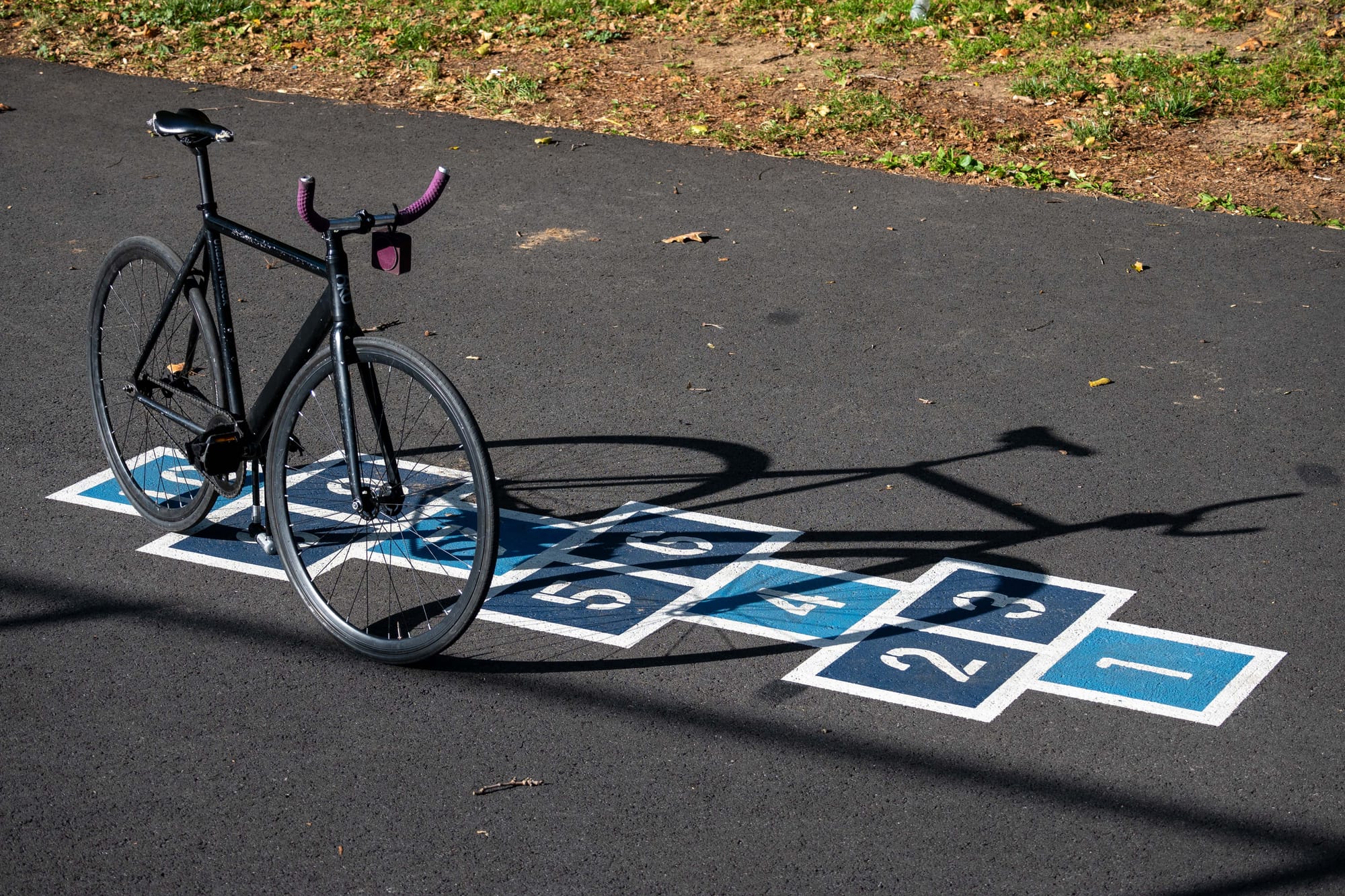
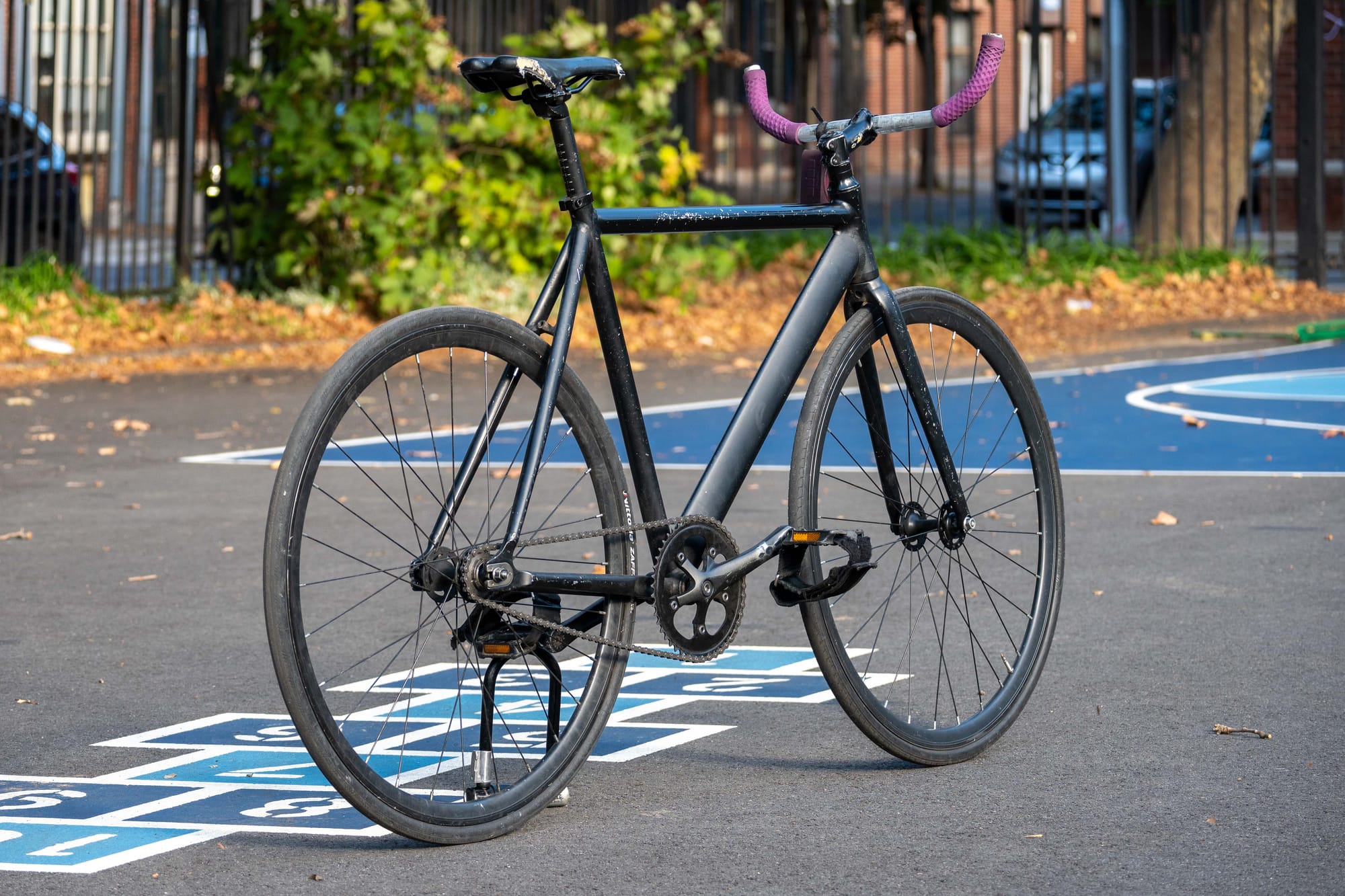
To Chris, bikes aren’t just for fun. Bikes are work. Bikes are income. Most people riding aren’t just riding for leisure. When you move on from couriering, she says, you have more energy for riding and can start riding for fun. That’s when people are able to start doing social rides on Friday nights and during the weekend.
Talking with Chris, you learn quickly her passion is profound. She's developing a project, Humans on Bikes, that aims to uplift Philly's courier culture. She wants to make stickers, interview couriers at Friday pickup hotspots, and cover events and races. She wants to help organize bikers around workers' rights and labor issues and achieve victories like those Los Deliveristas Unidos have been doing in NYC.
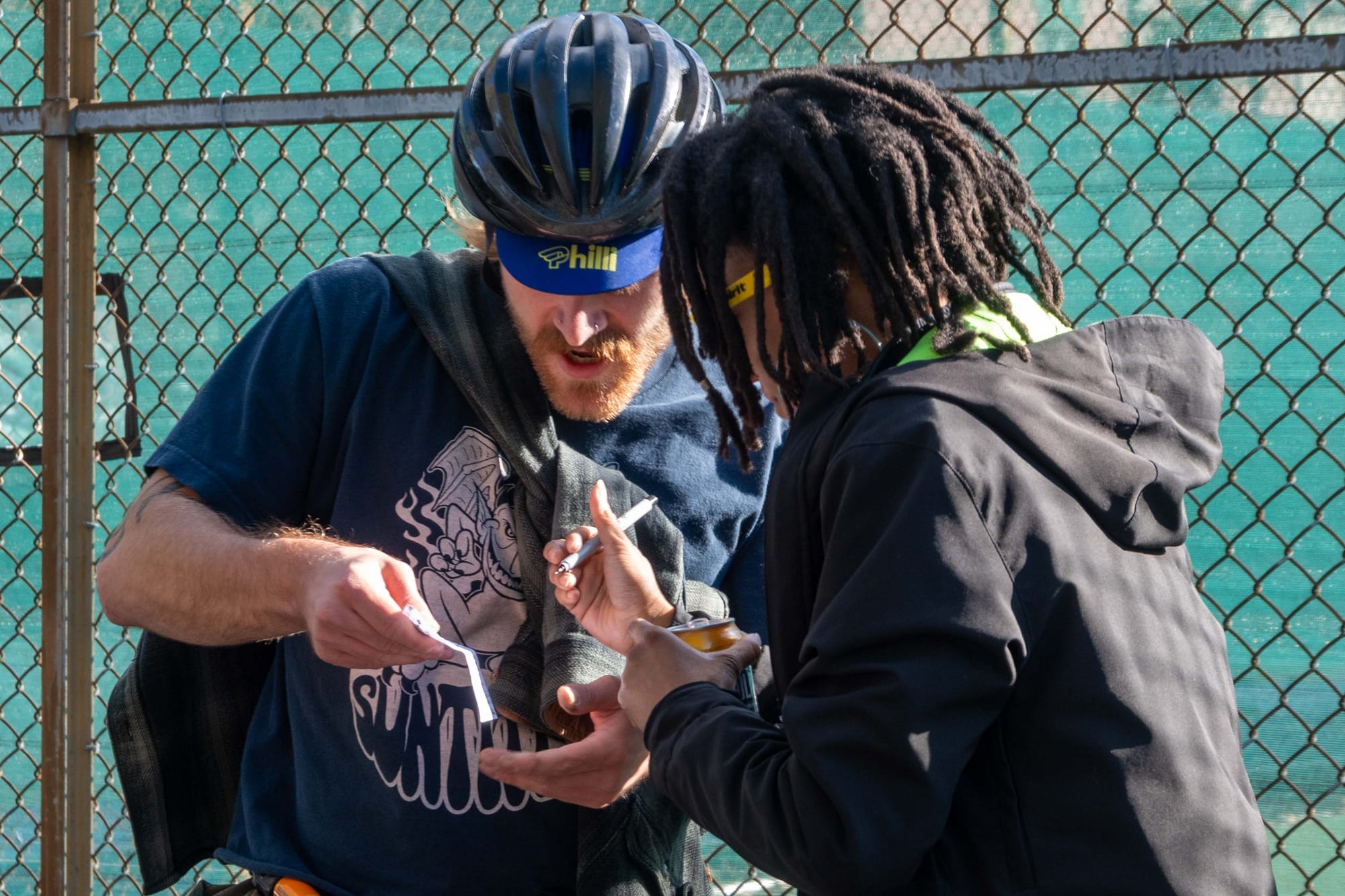
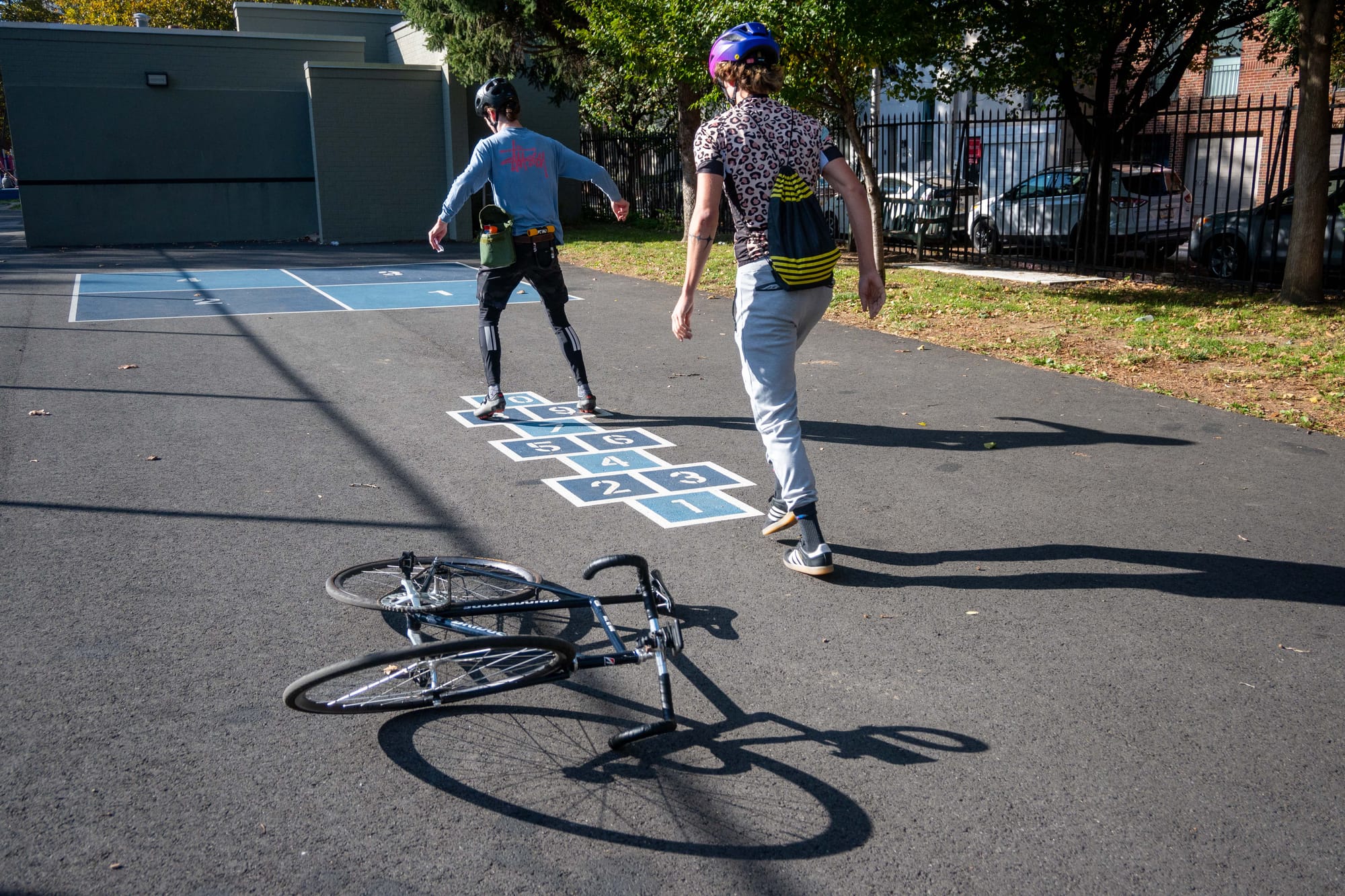
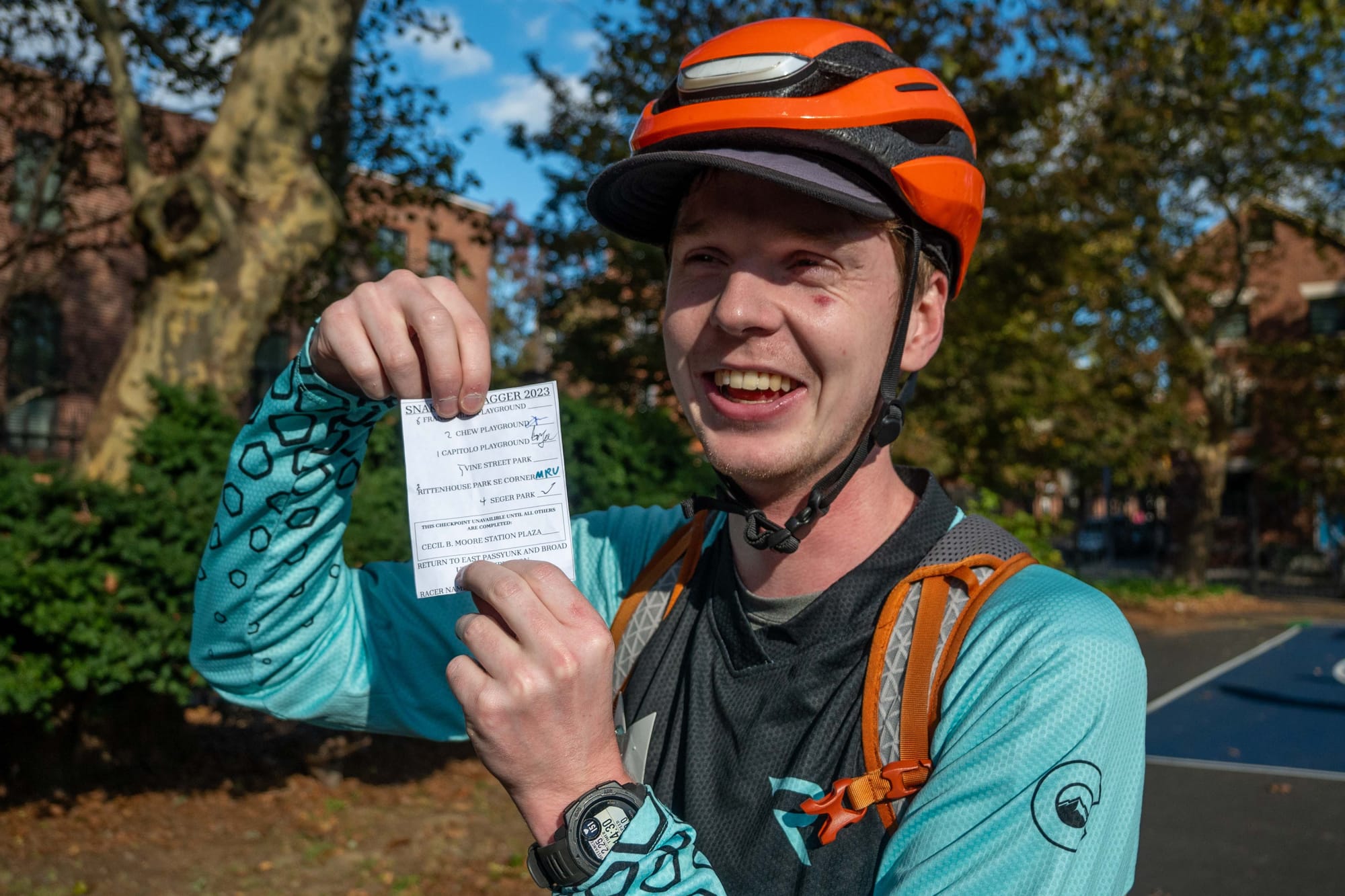
On representation, Chris says she didn't get into cycling because she saw Black people doing it, she got into it because she needed a job. Does she want to see more people of color in an exploitative and underpaid gig economy? Fuck no. Does she think more people of color should get into biking? Yes, of course! Chris acknowledges that riding bikes is a healthy outlet and can serve people without a driver's license or other resources, but that bikes also carry a stigma. For some Black people, being seen on a bike has negative connotations. For economically or societally oppressed people, taking the bus or train or riding a bike is a poverty metric: like you can't afford a car so you have to. Nobody wants to look poor. The bike lanes that can protect us and improve access across the city also signal development, rising costs, and displacement. Like the chain on a well-tuned fixie, tension is inherent.
As for biking in Philly, Chris says you need to stay on guard and that drivers will try to kill you. But it's a very bikeable city. You'll see the same people, you'll develop new relationships, and you'll get to know the city and always know your way around. That intimate relationship a courier develops with the city's streets is crucial to winning an alleycat like Chris did this summer: "You have to know the map and know your route. You can't make mistakes or miss a checkpoint. It's not just about speed."
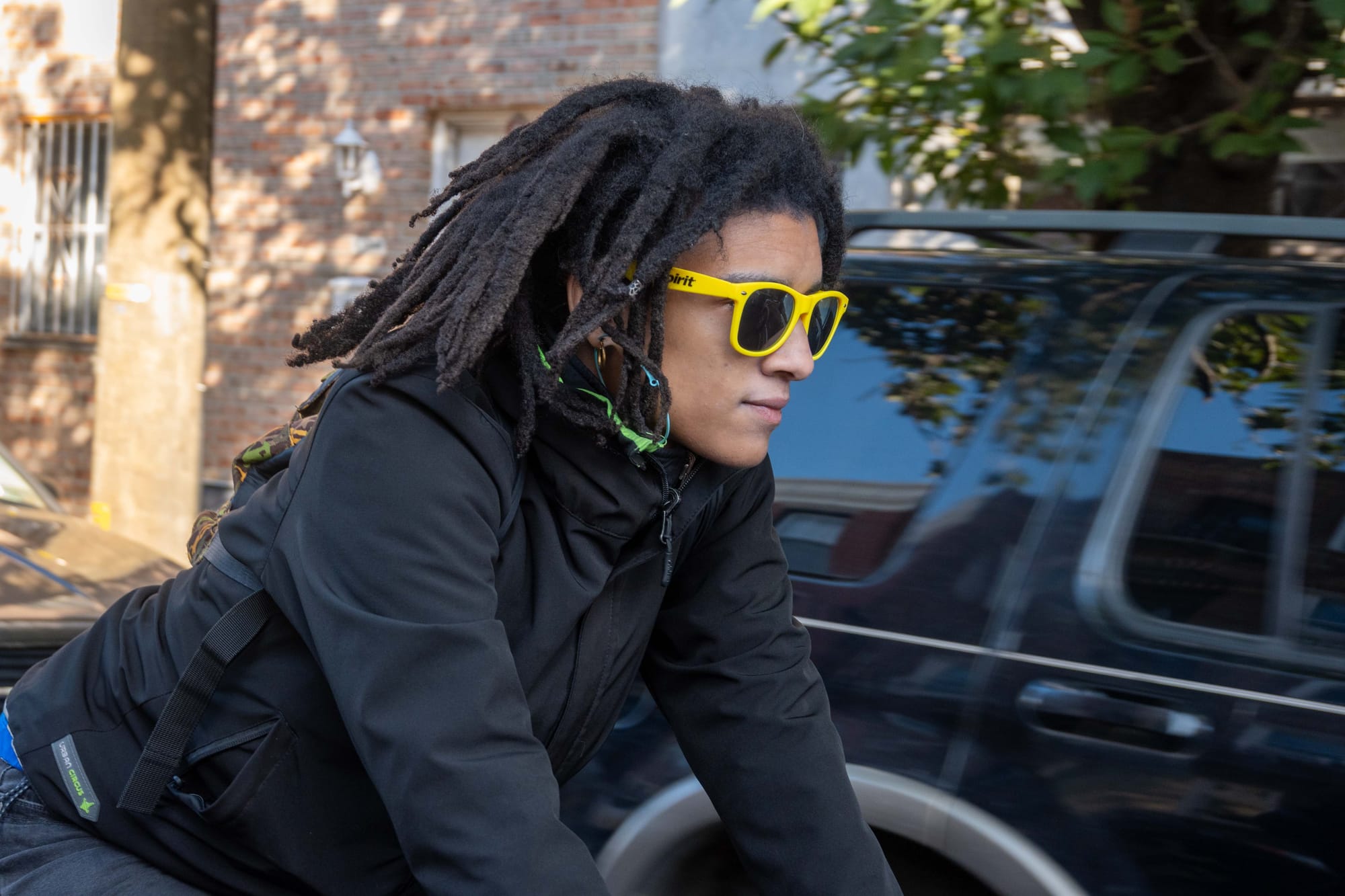
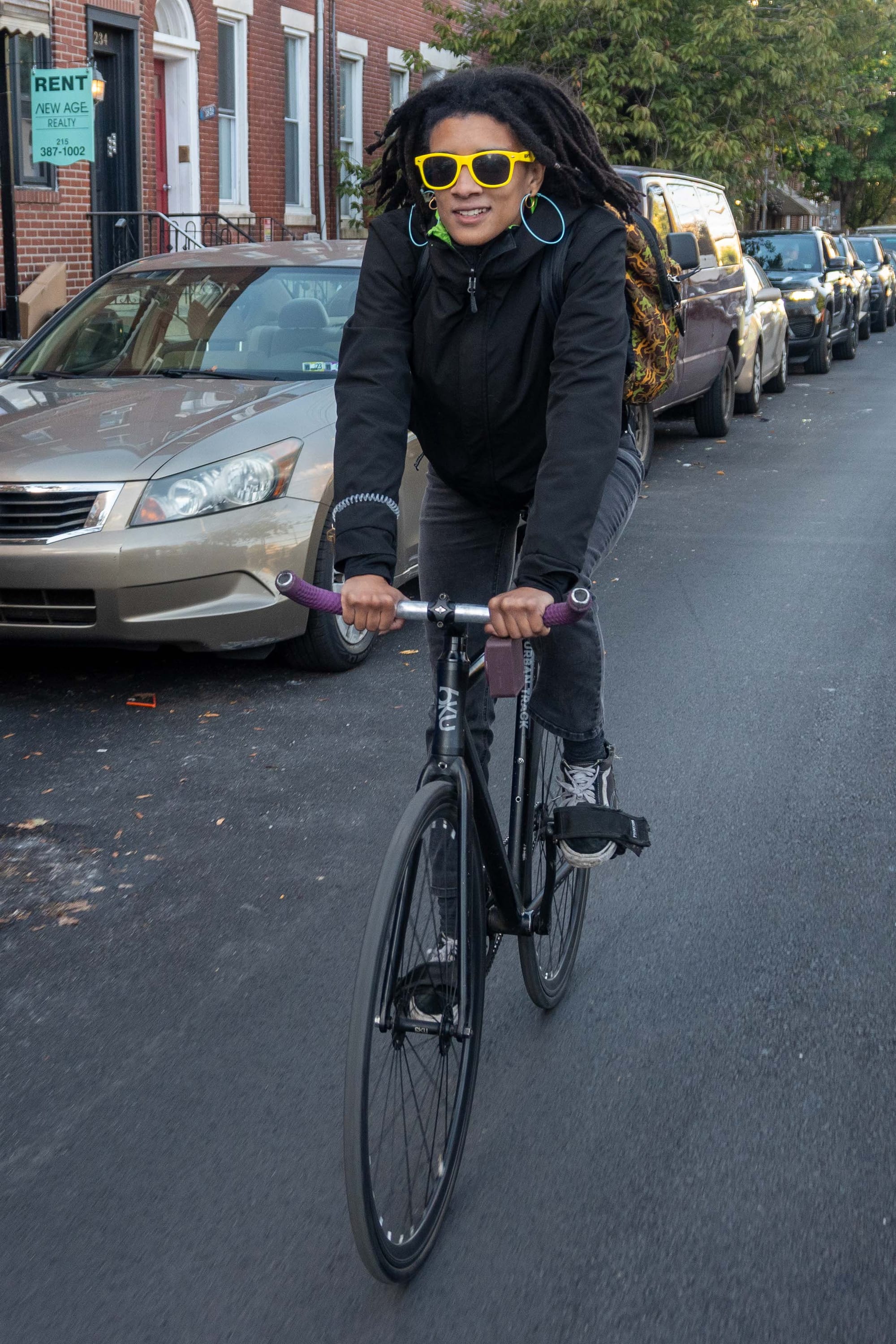
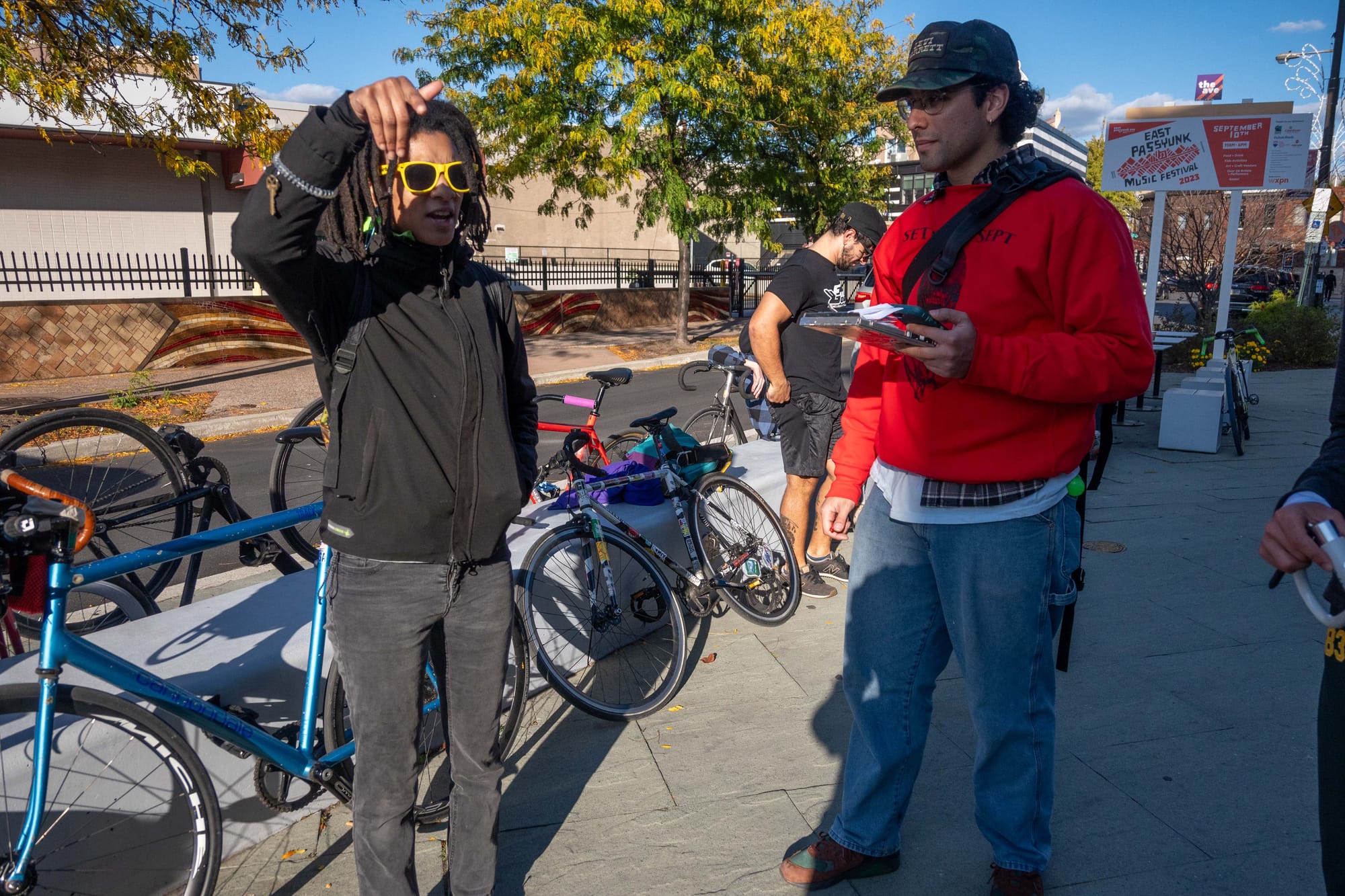
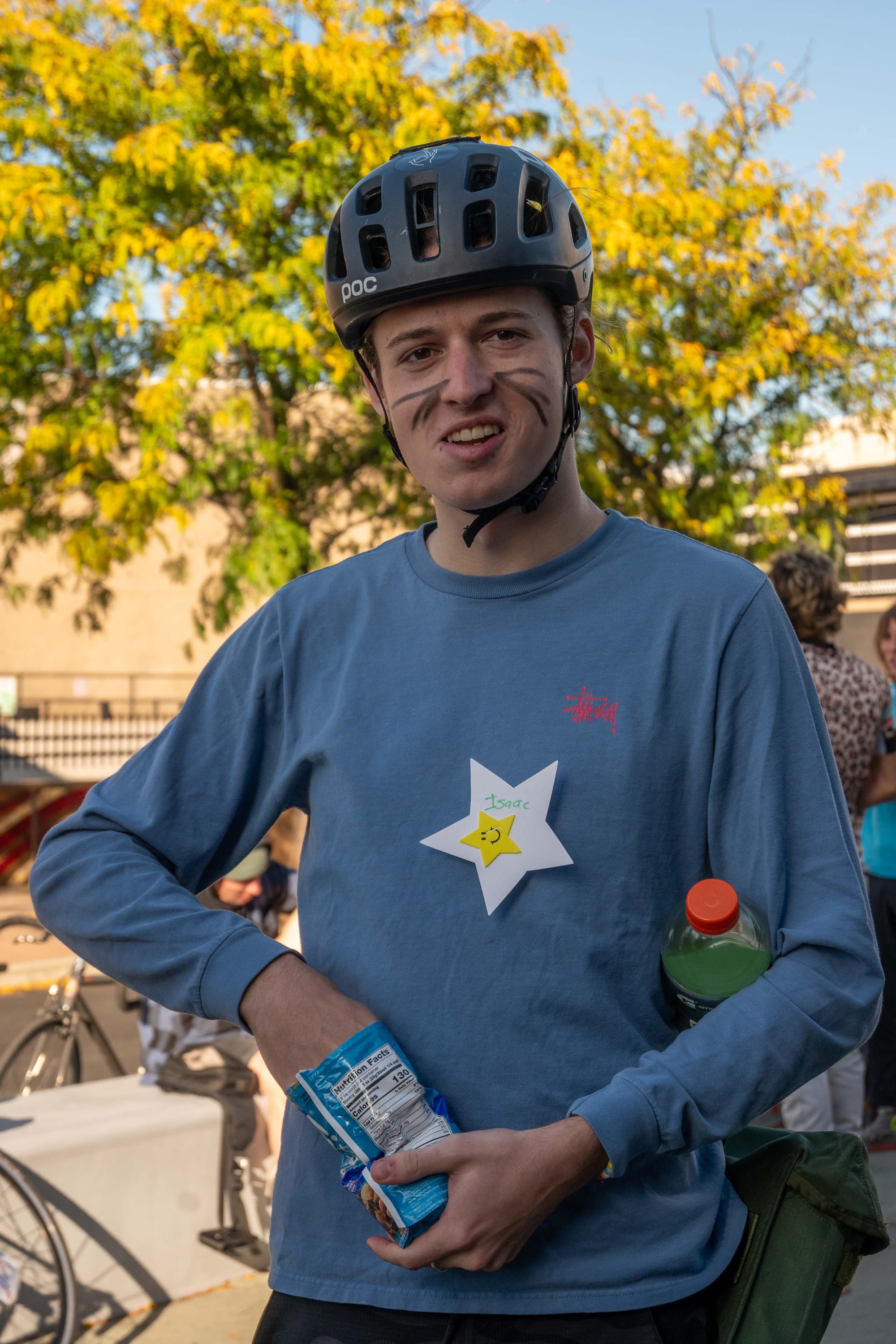
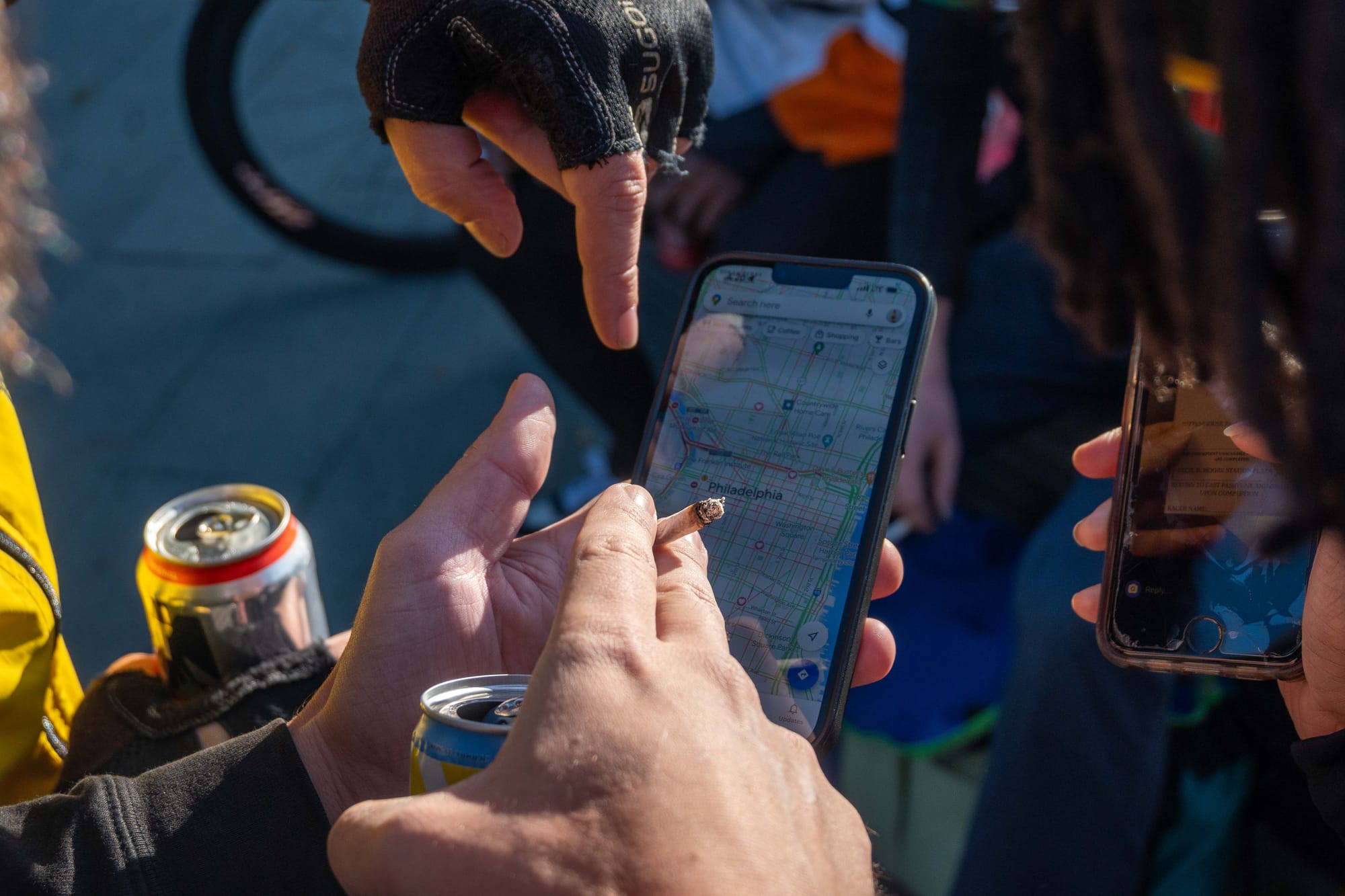
Salmoning against traffic down Passyunk Ave toward the finish, we reflected how fun it was getting to see all the riders pull through. She really enjoyed seeing Citywide organizers, Jarrah and Dan, compete and she's excited to checkpoint for their race next summer. When we arrived back at East Passyunk Gateway, we found the finishers celebrating and recapping their races. Somewhere along the way, mere humans evolved from alleykittens to true alleycats by getting whiskers painted on their cheeks. Winners brought home trophies and mids.
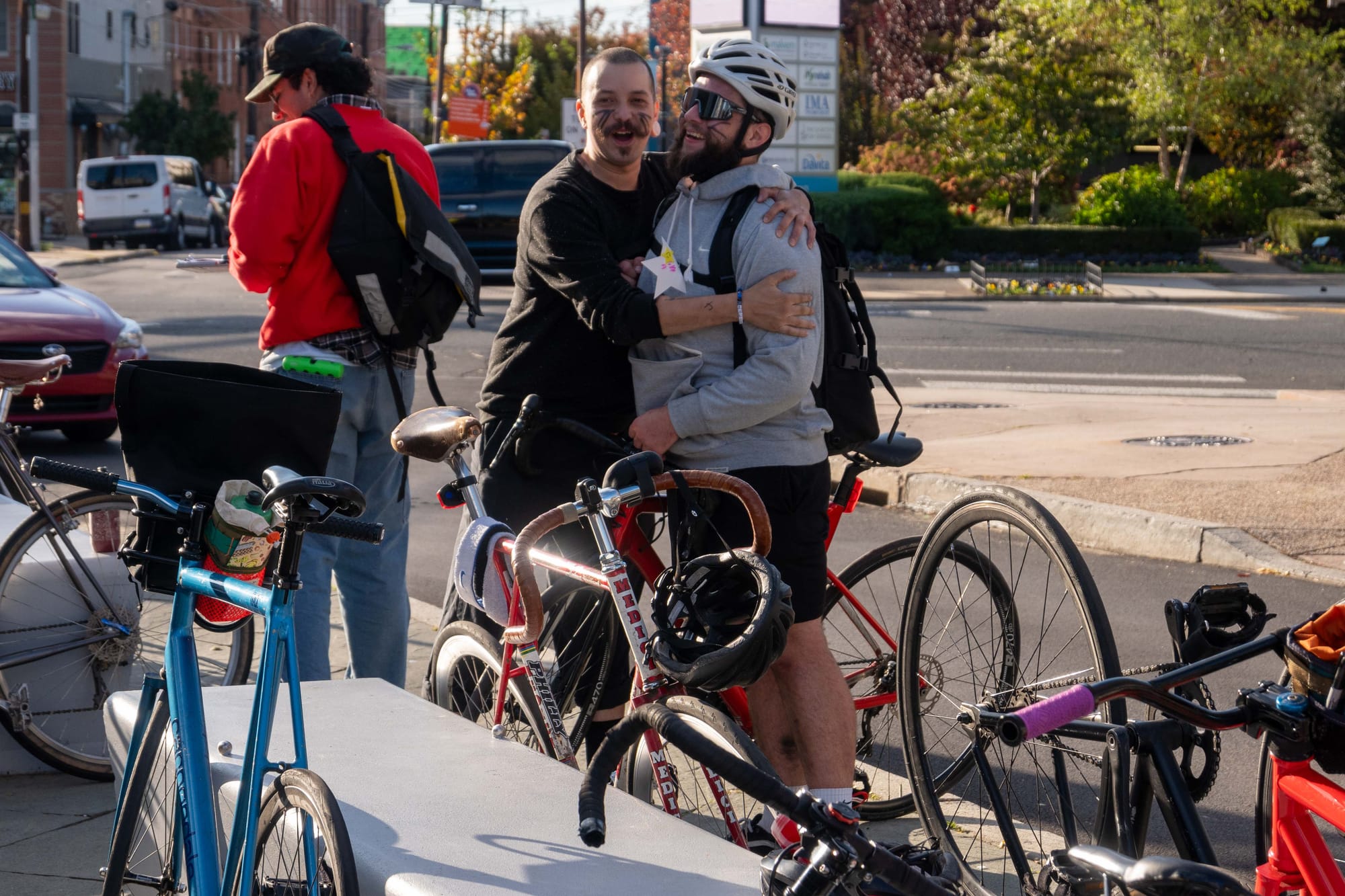
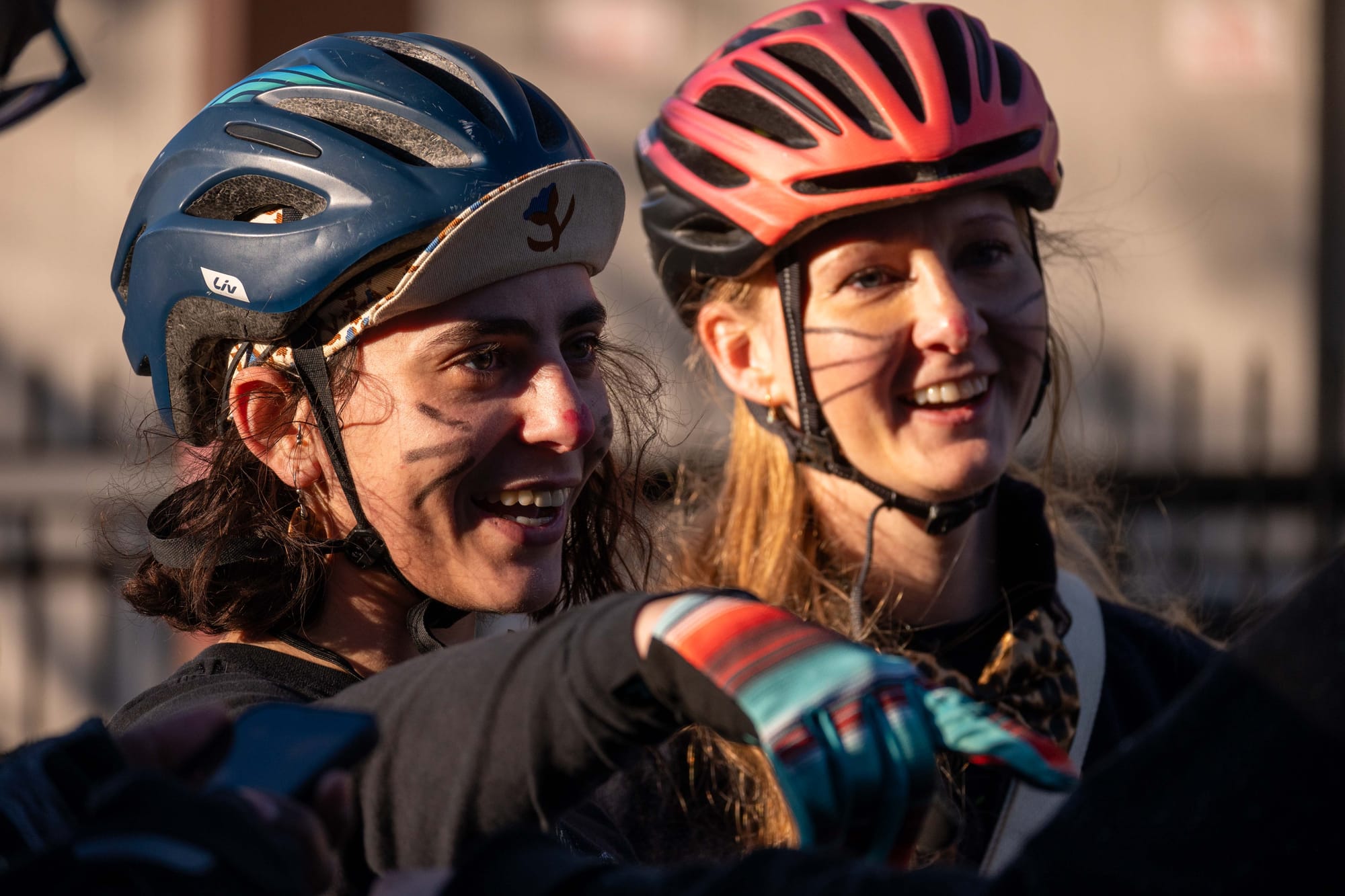
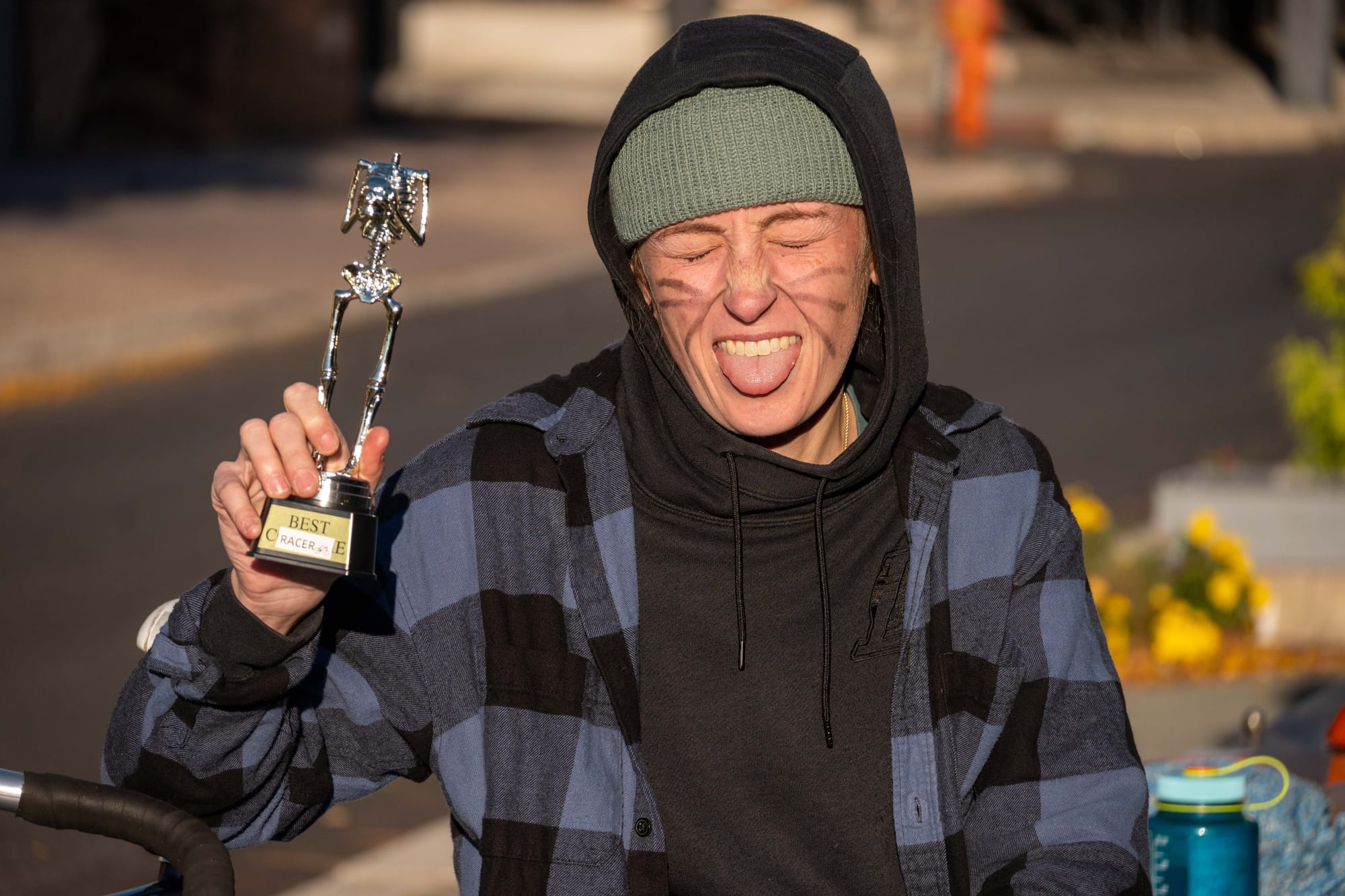
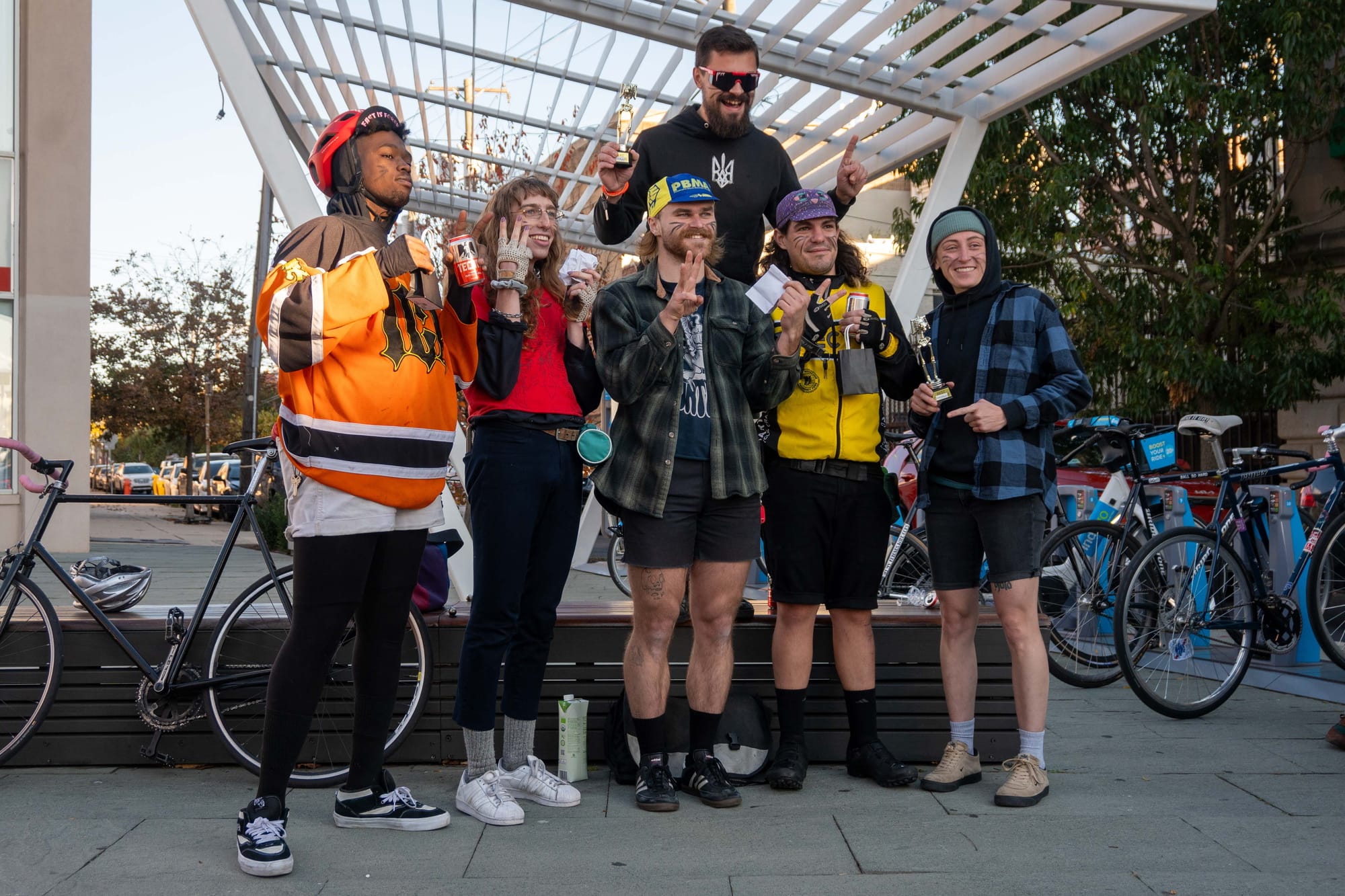
Keean stressed that it doesn't take too much to throw an event like this together: maybe an hour planning the manifest, 30 minutes designing the flyer, shooting out a few DMs, and BOOM!, a stand-out race for a good cause. Racing in an alleycat is a thrill that's difficult to compare. Turns out volunteering at a checkpoint has its own thrills.
